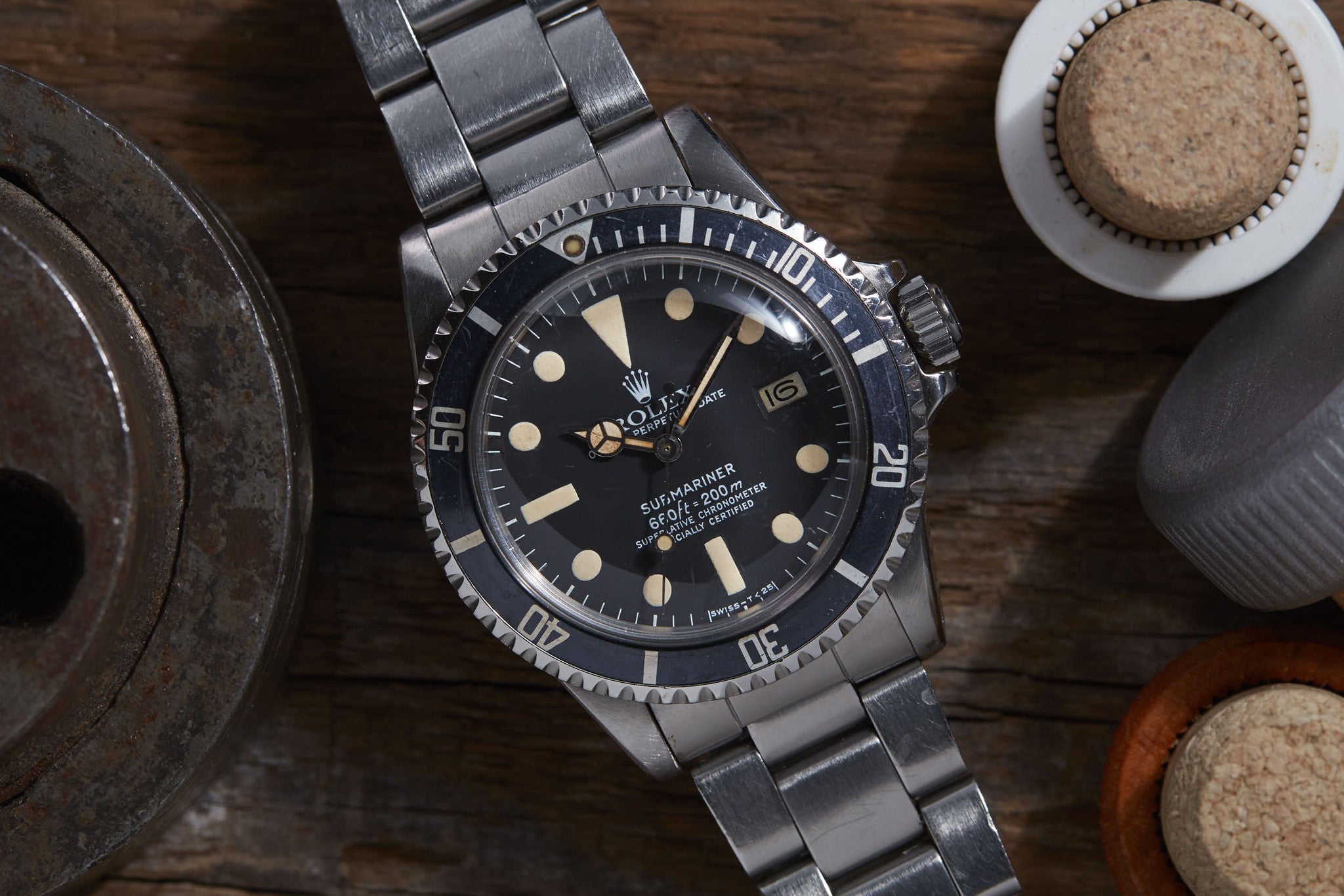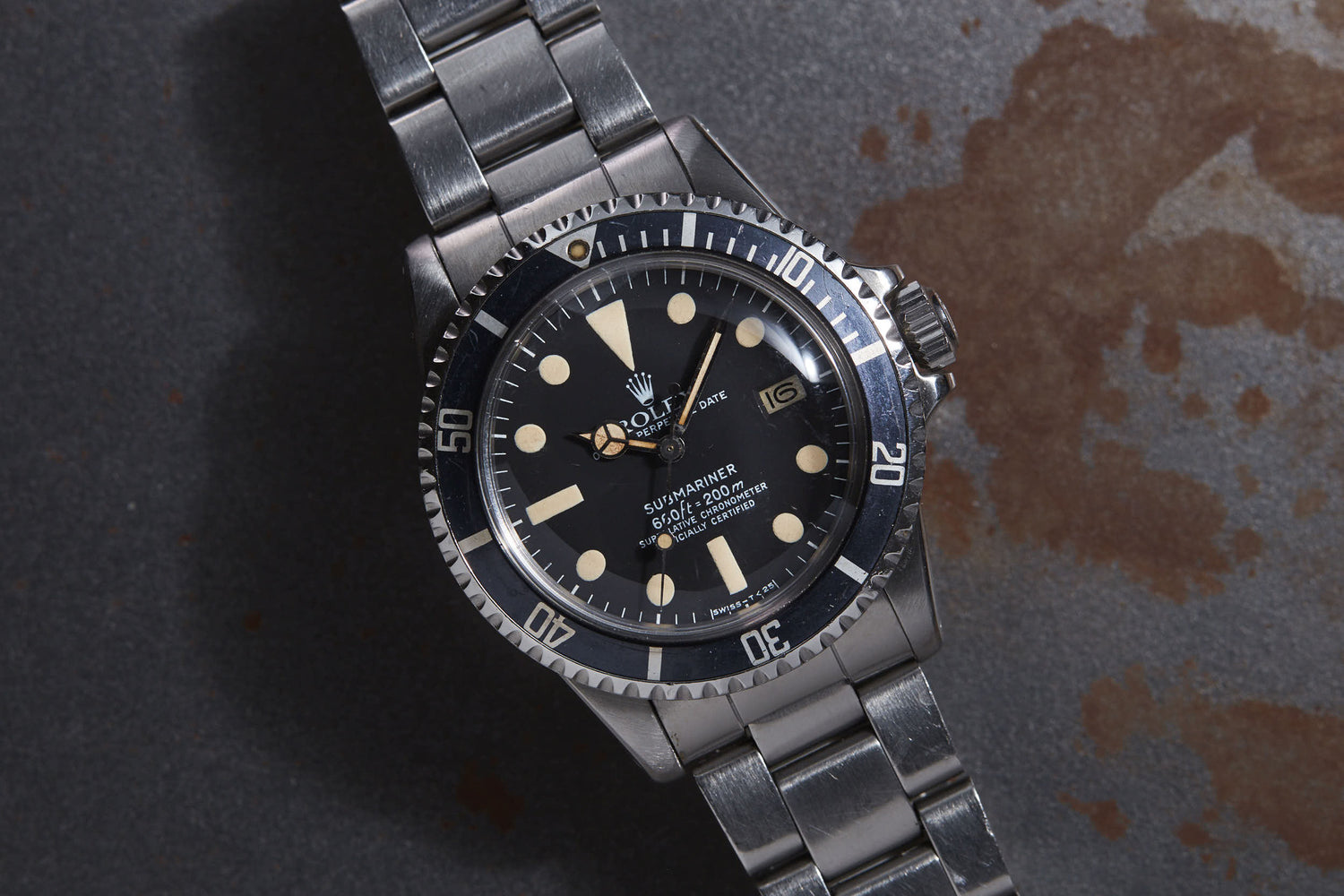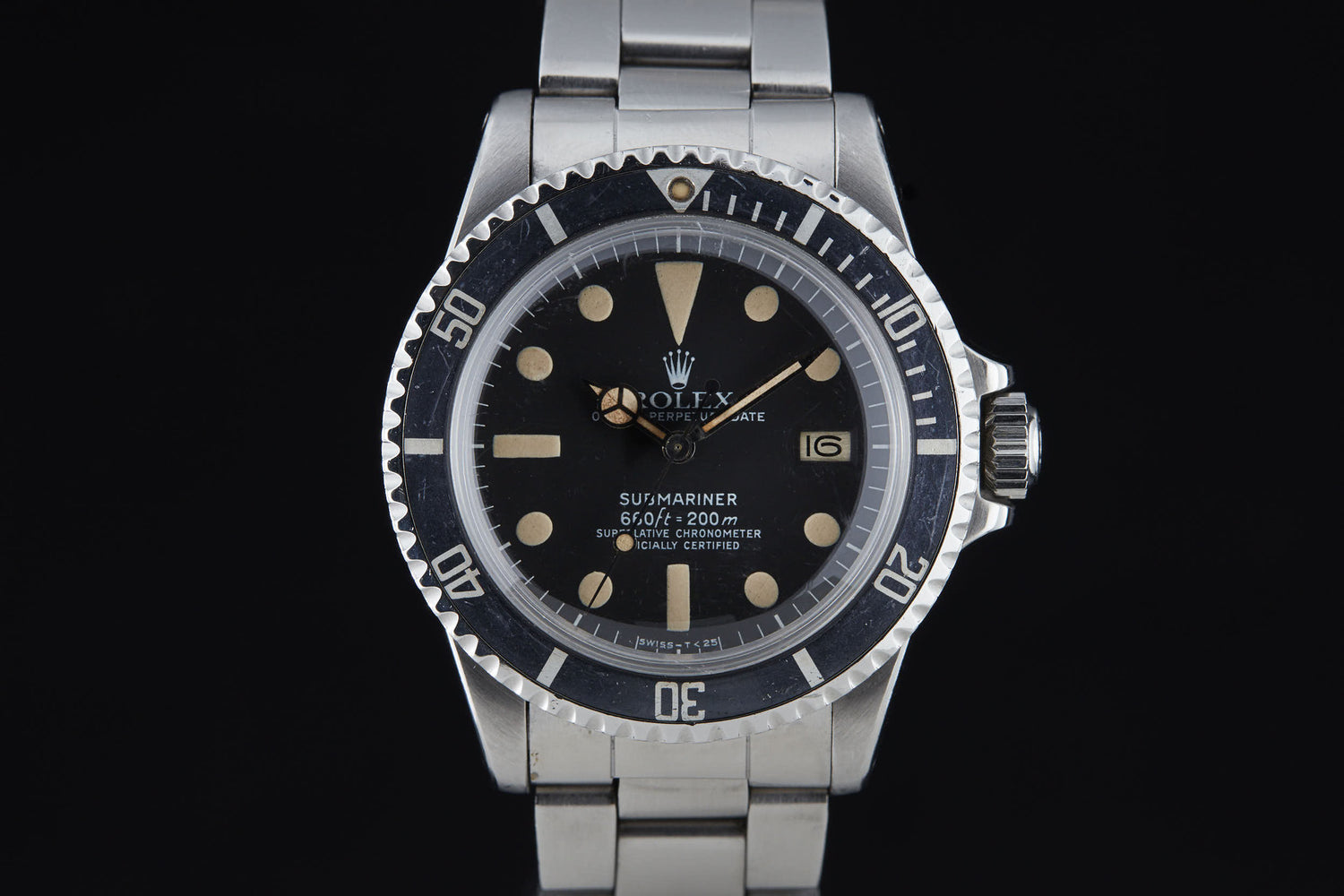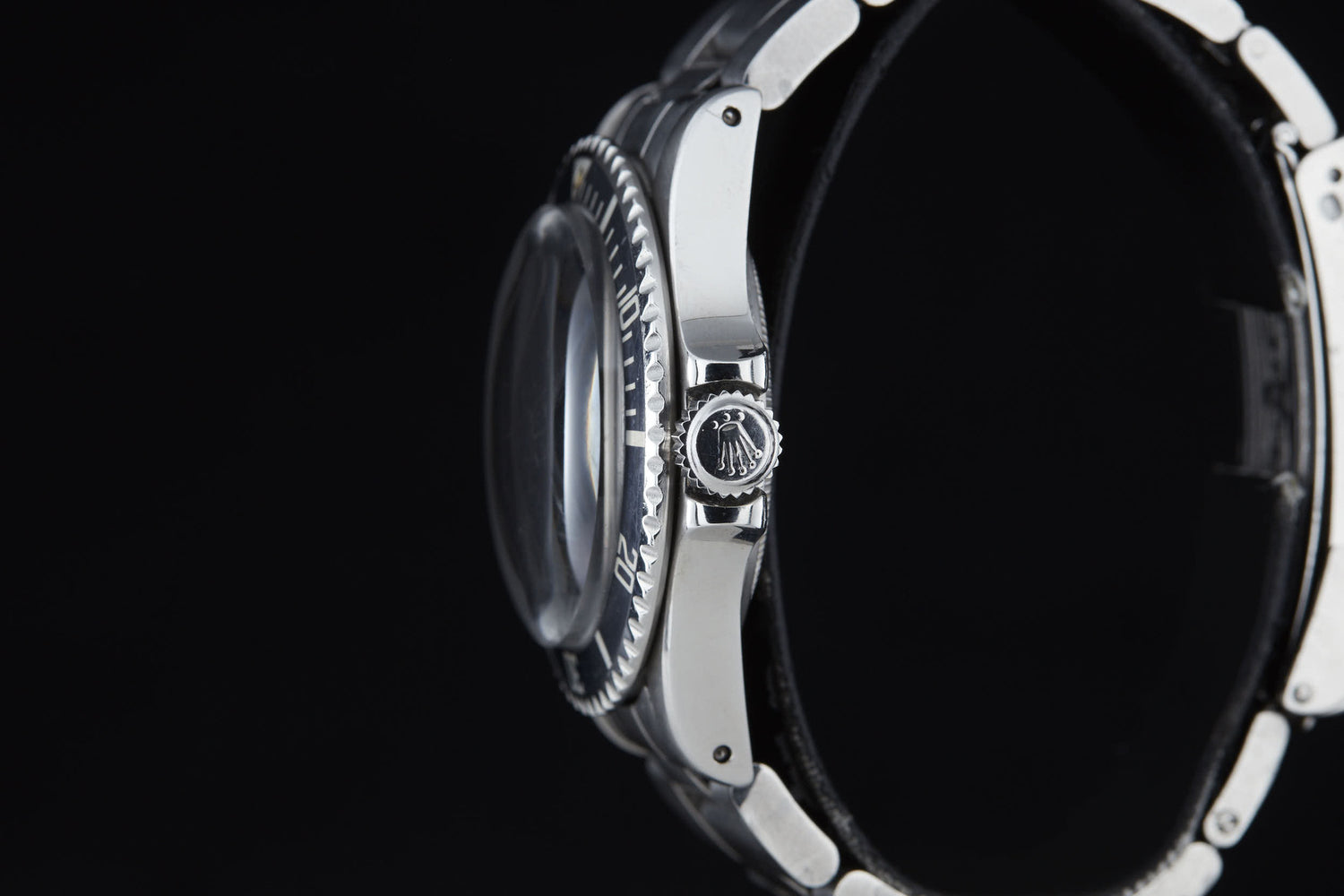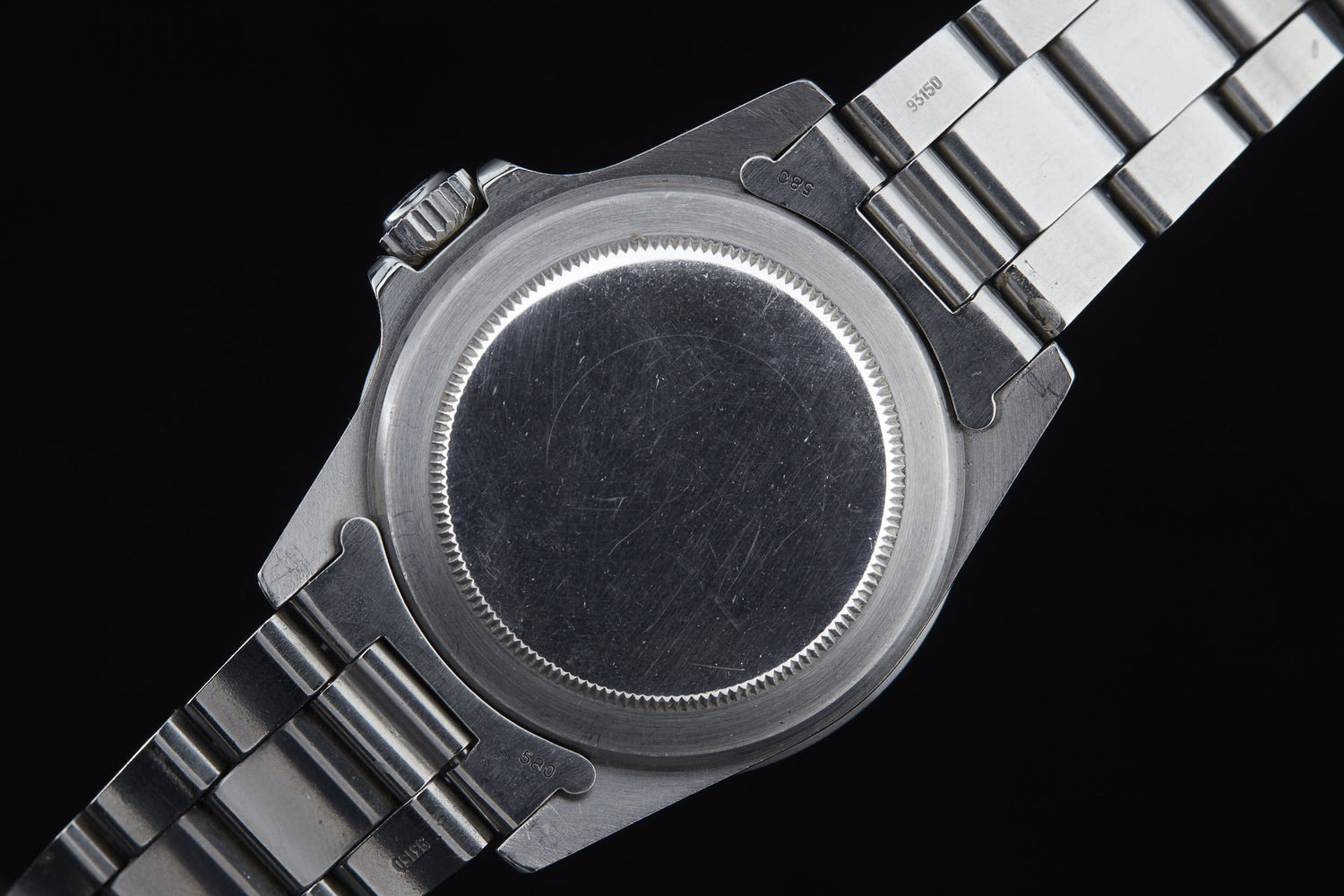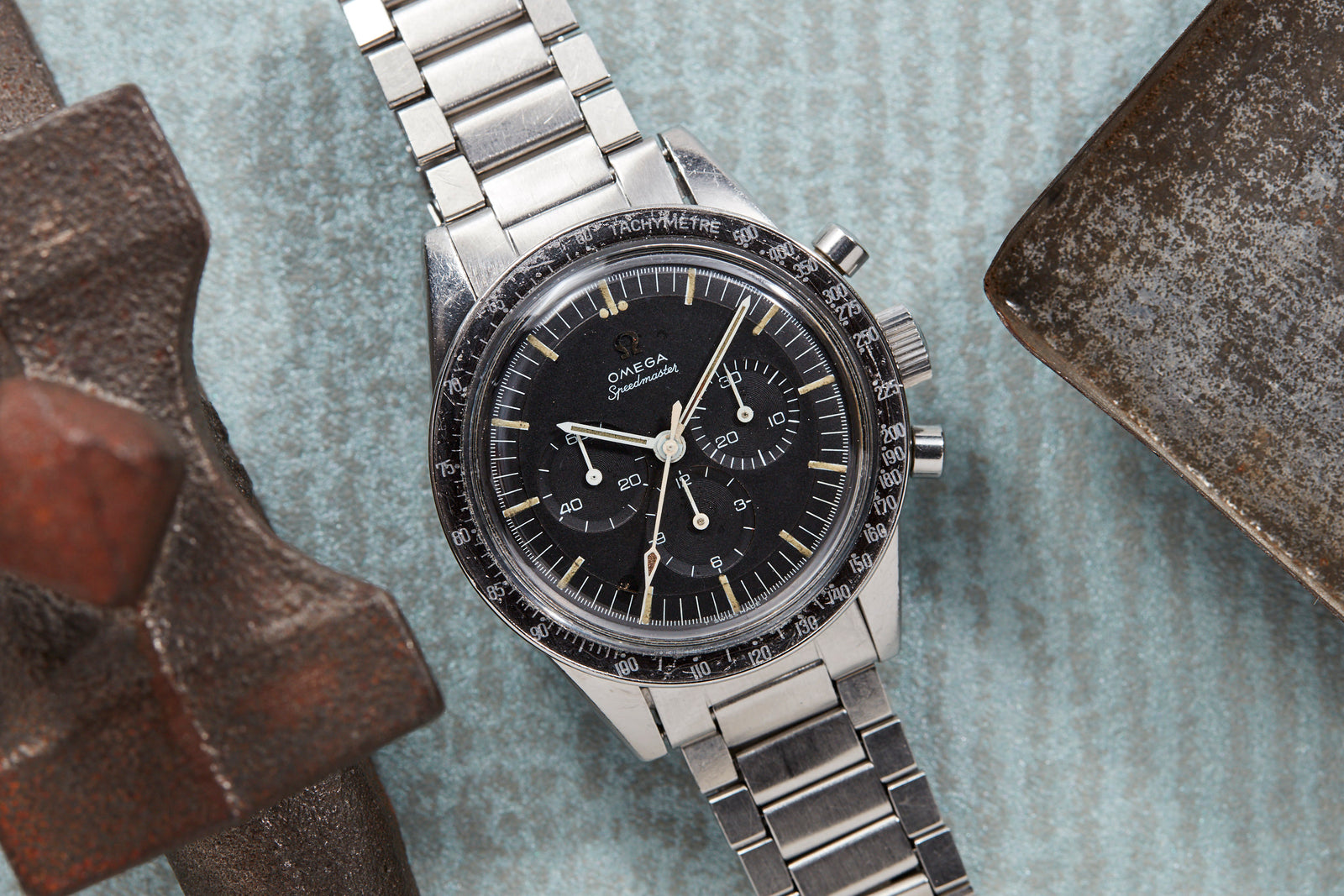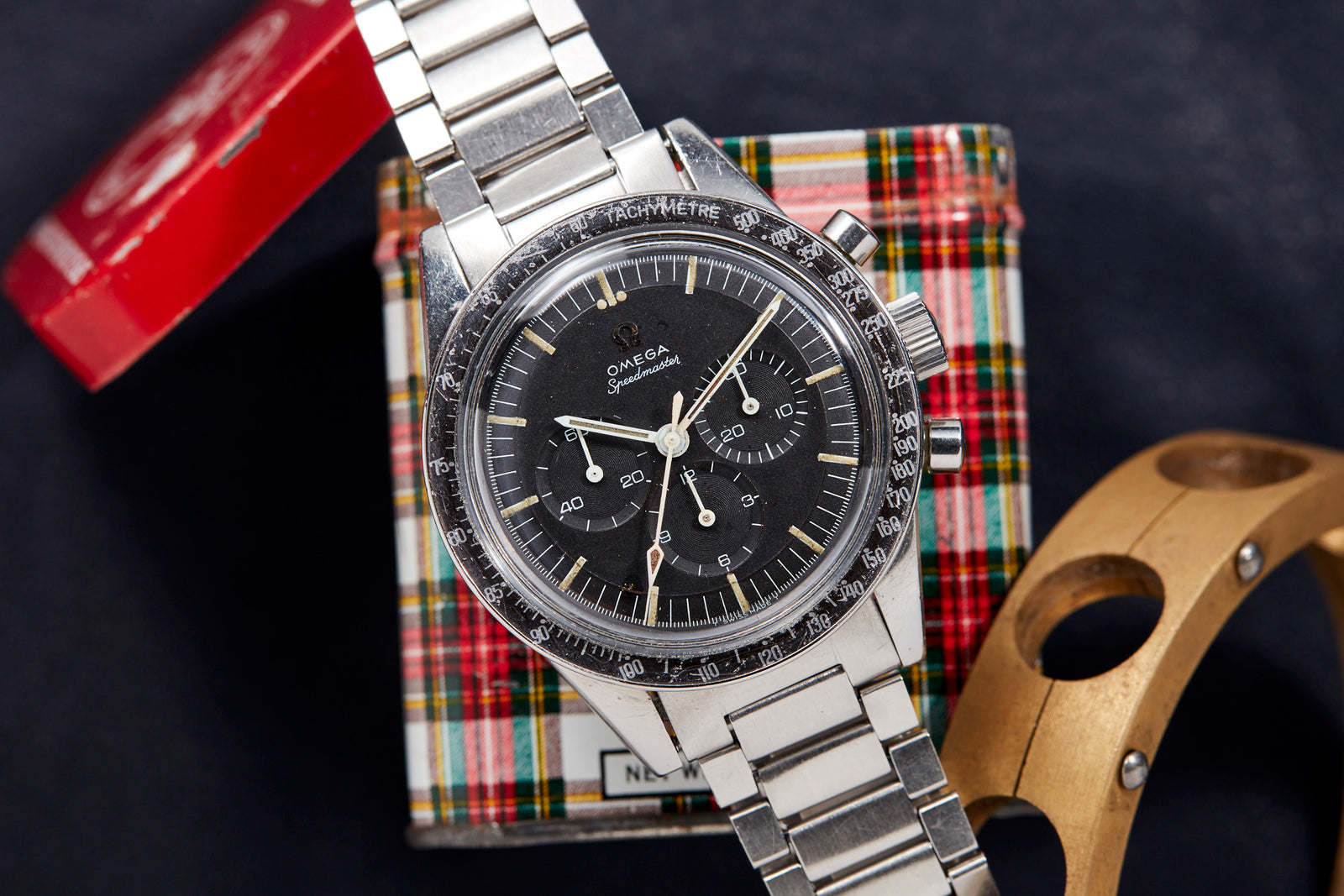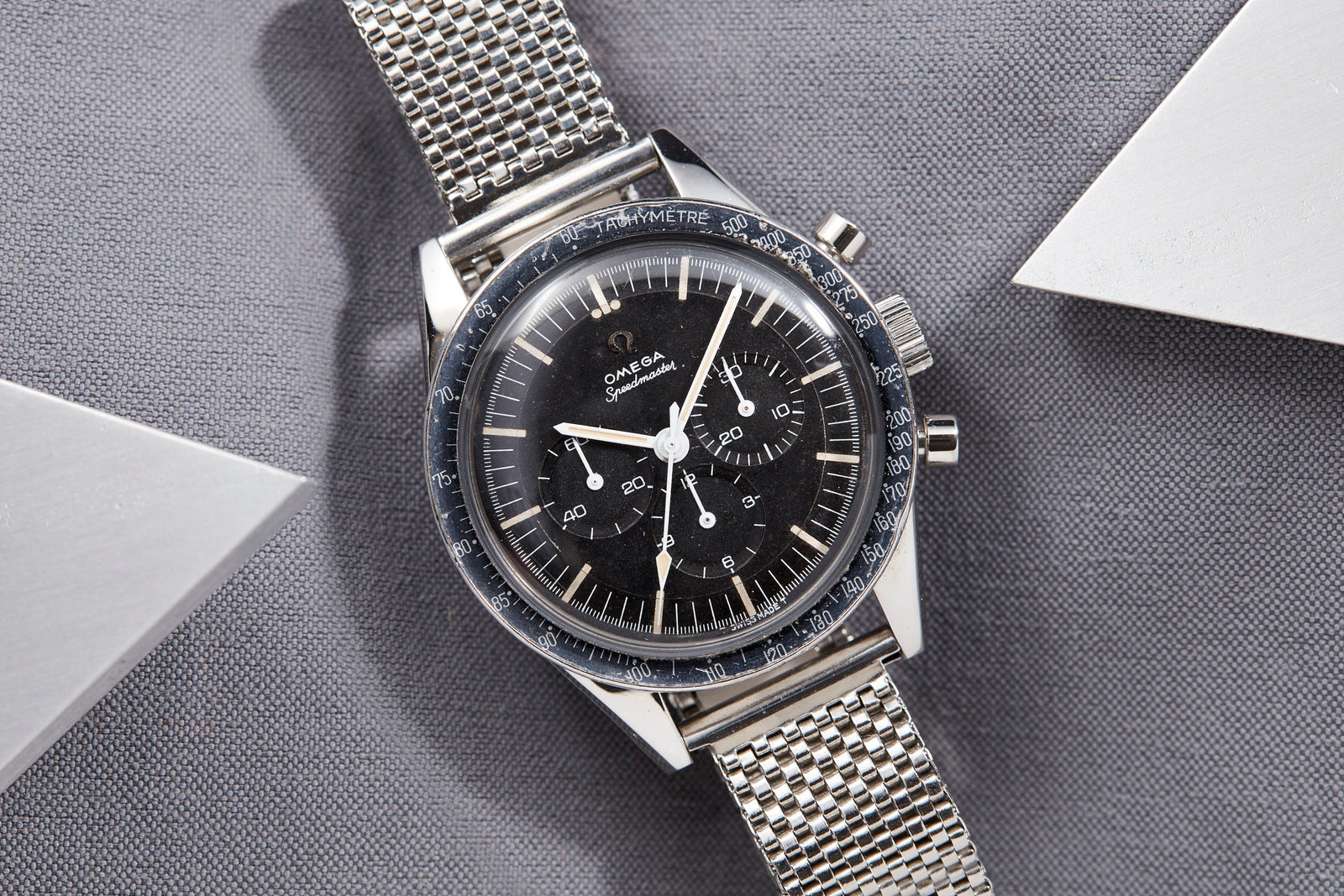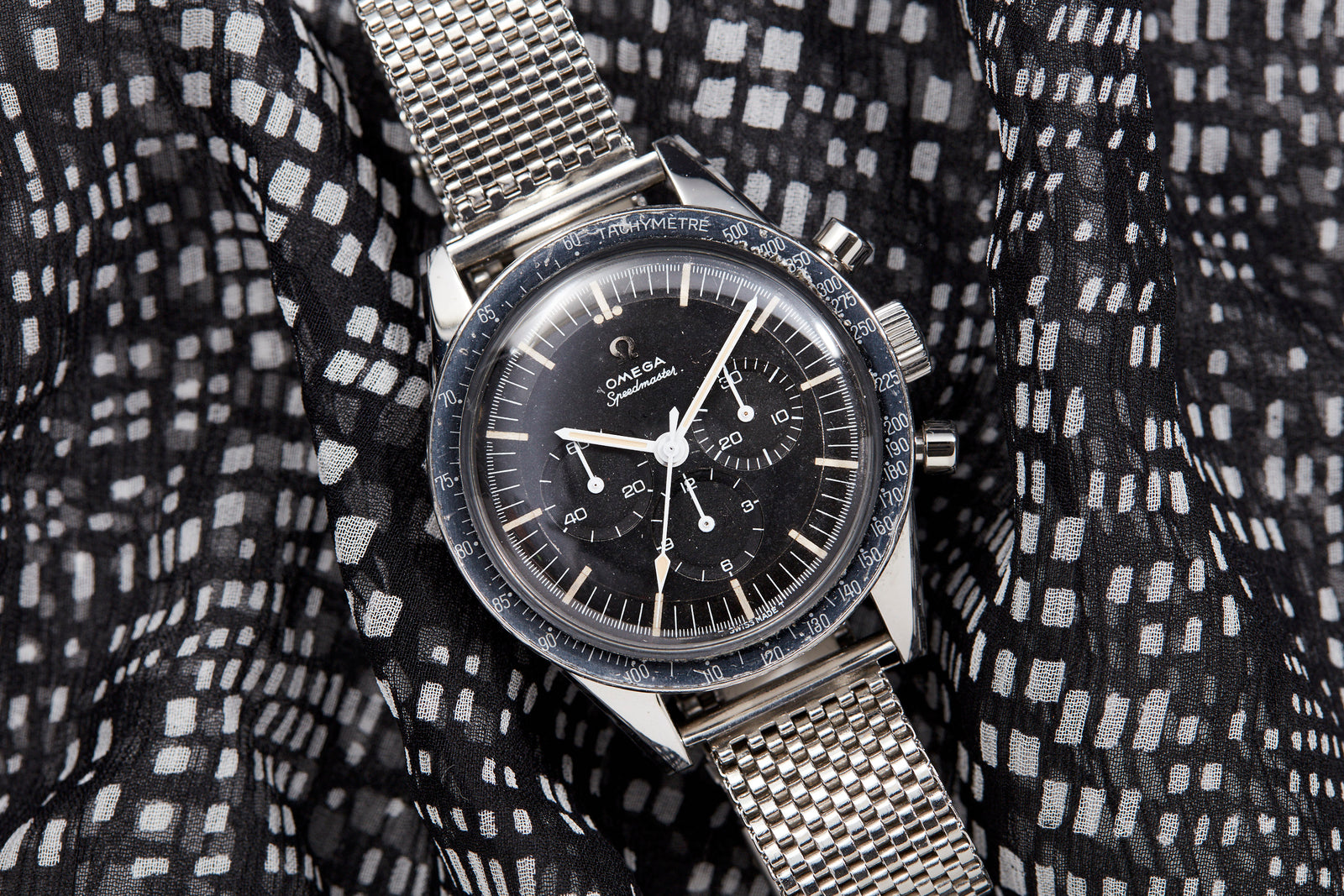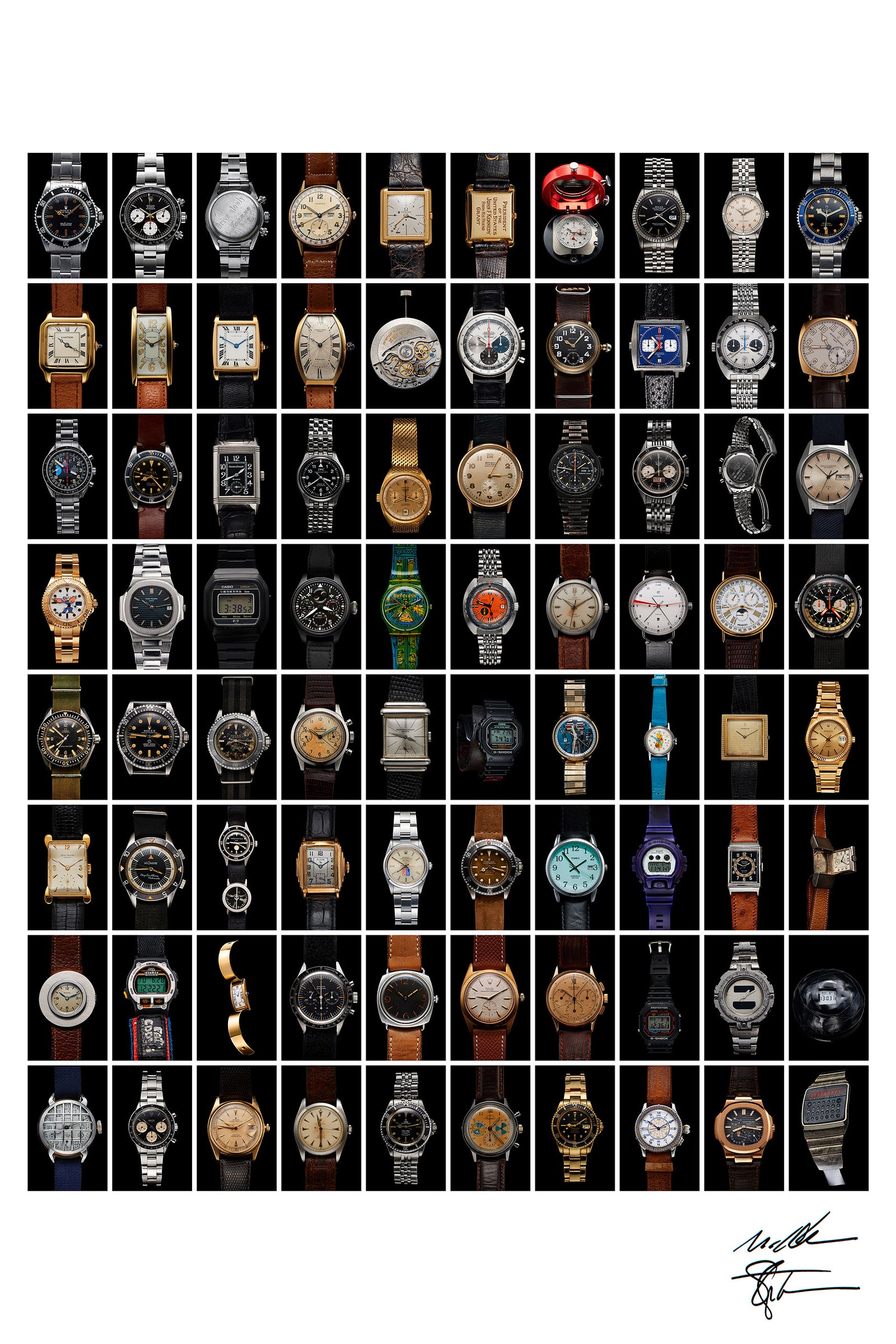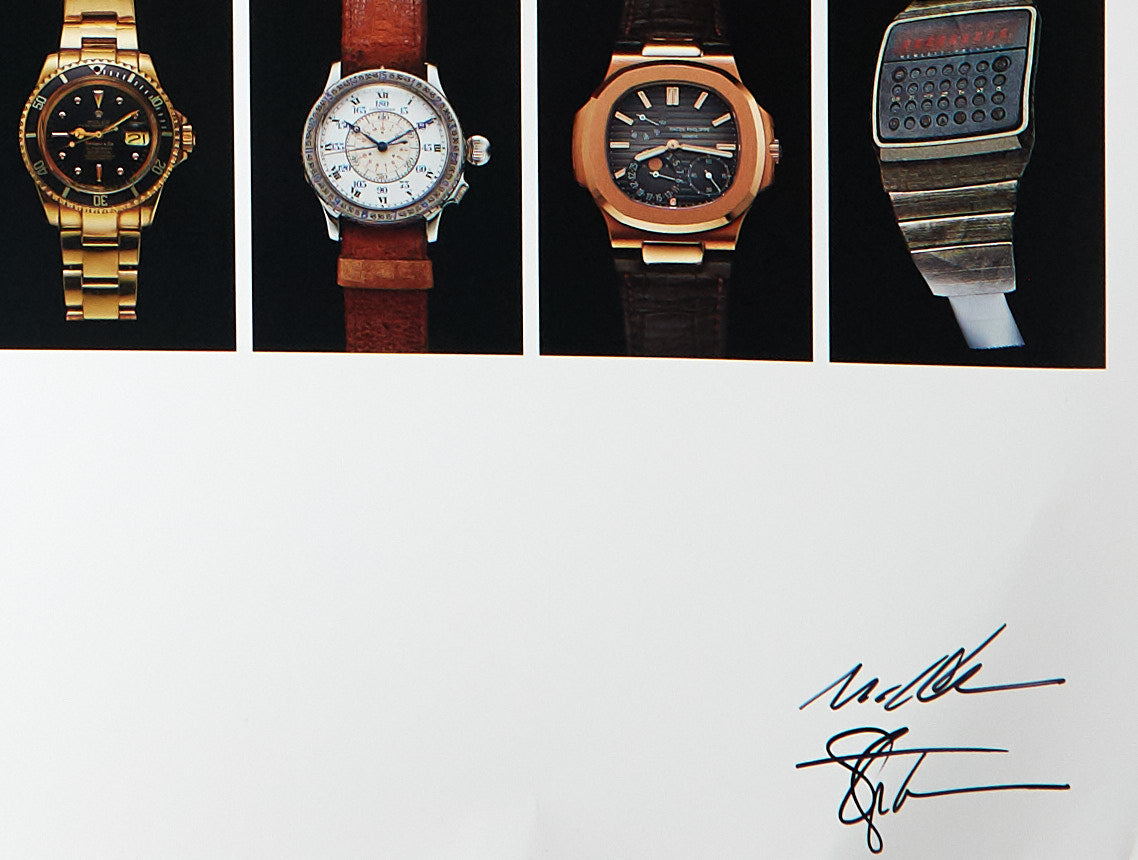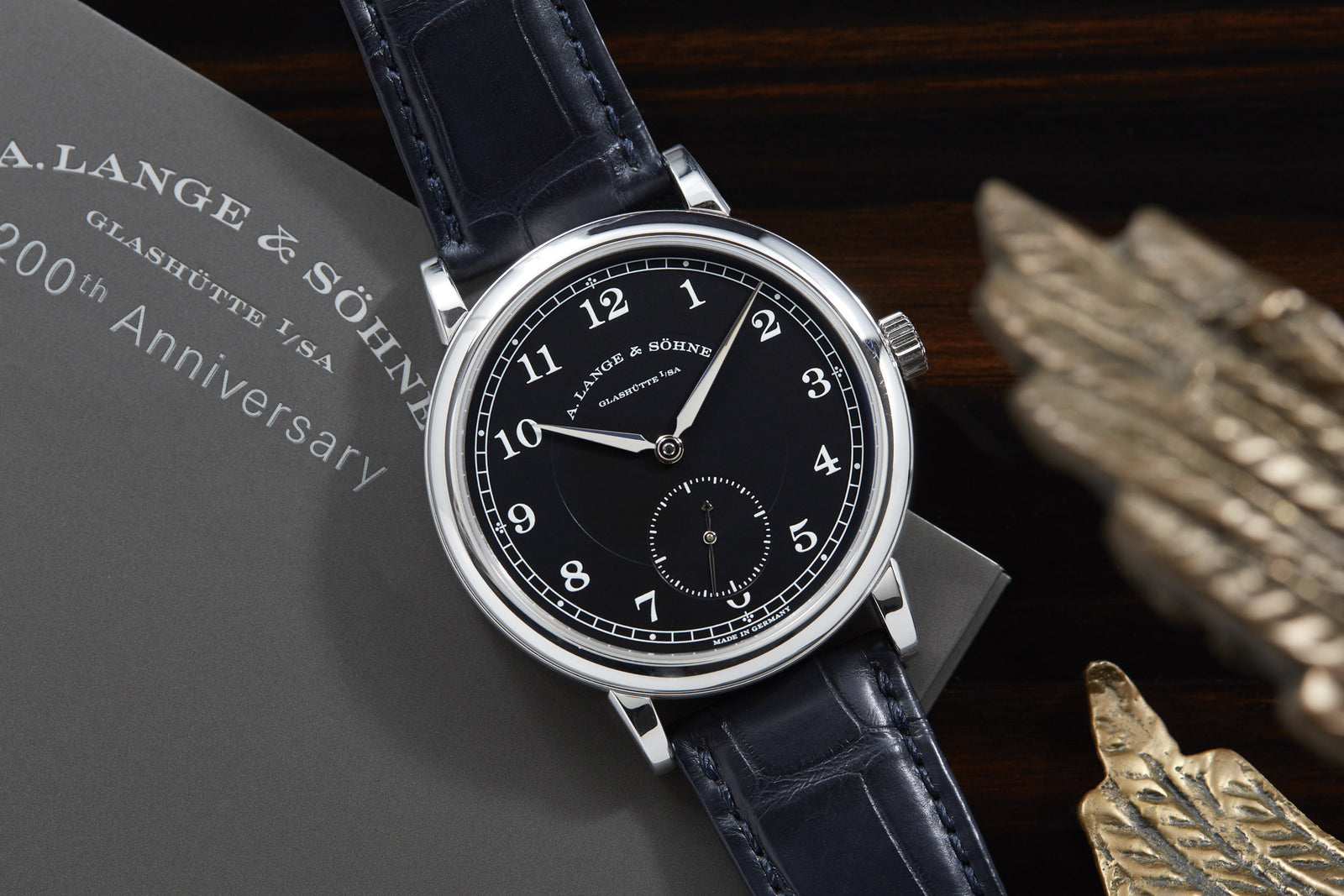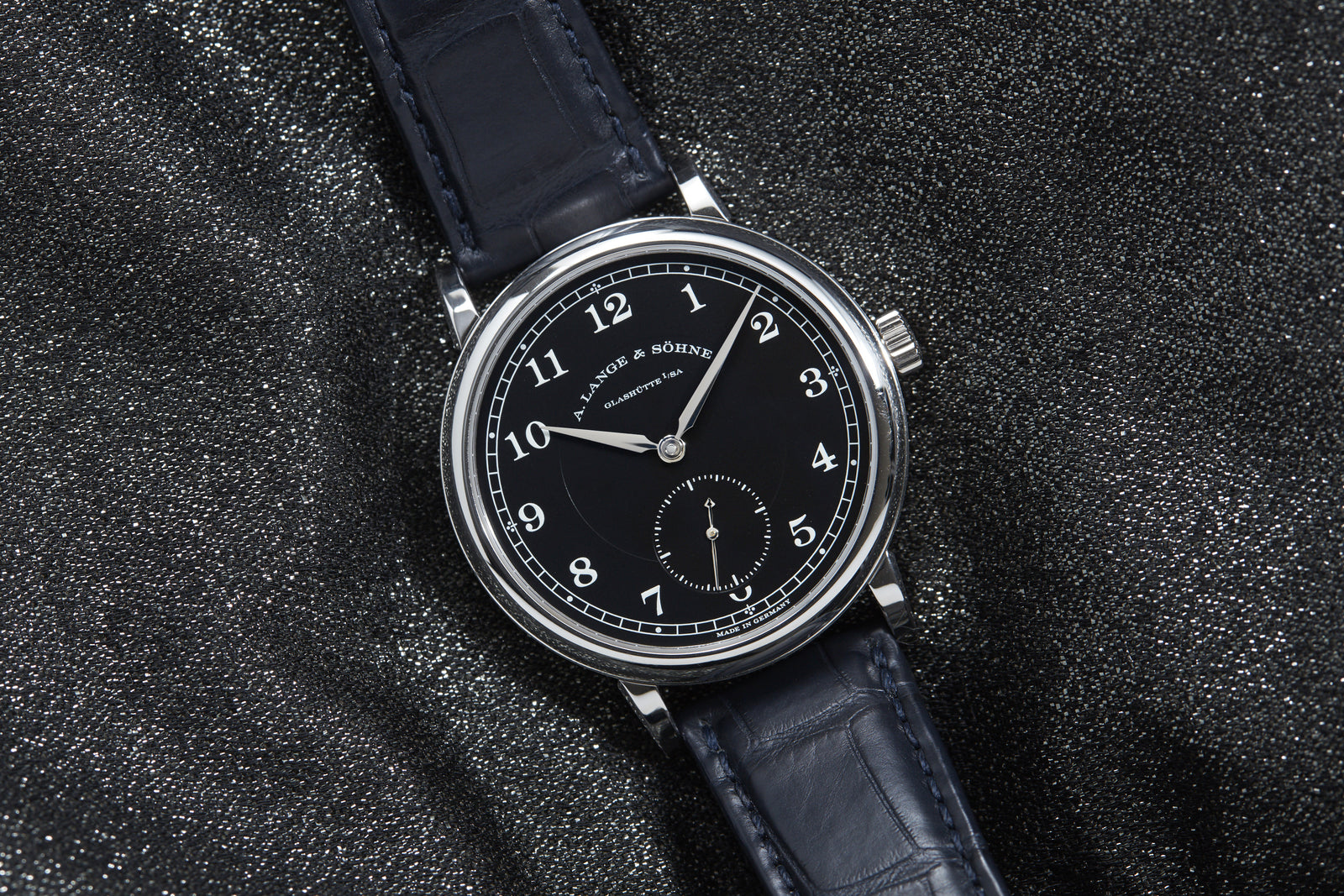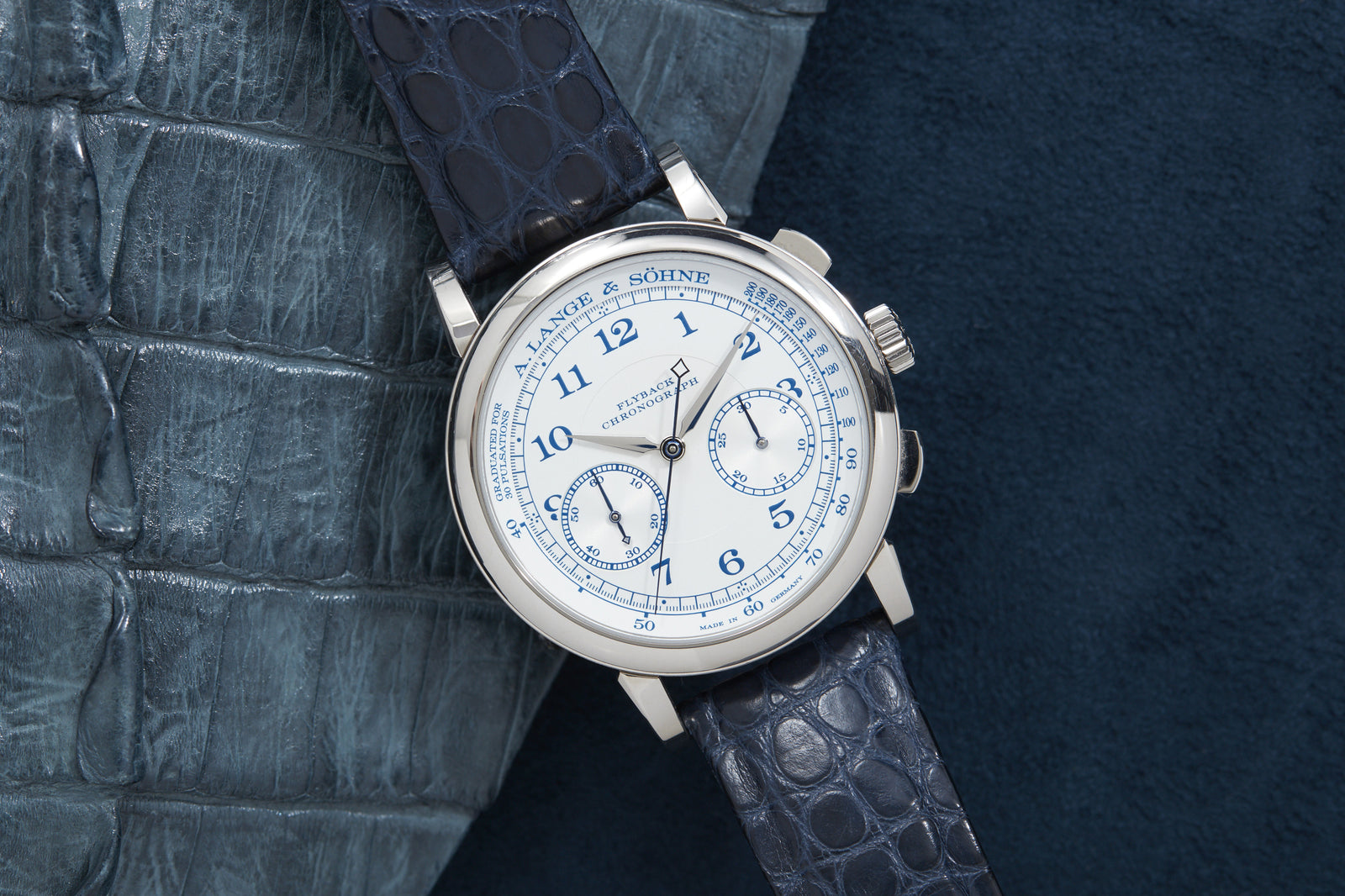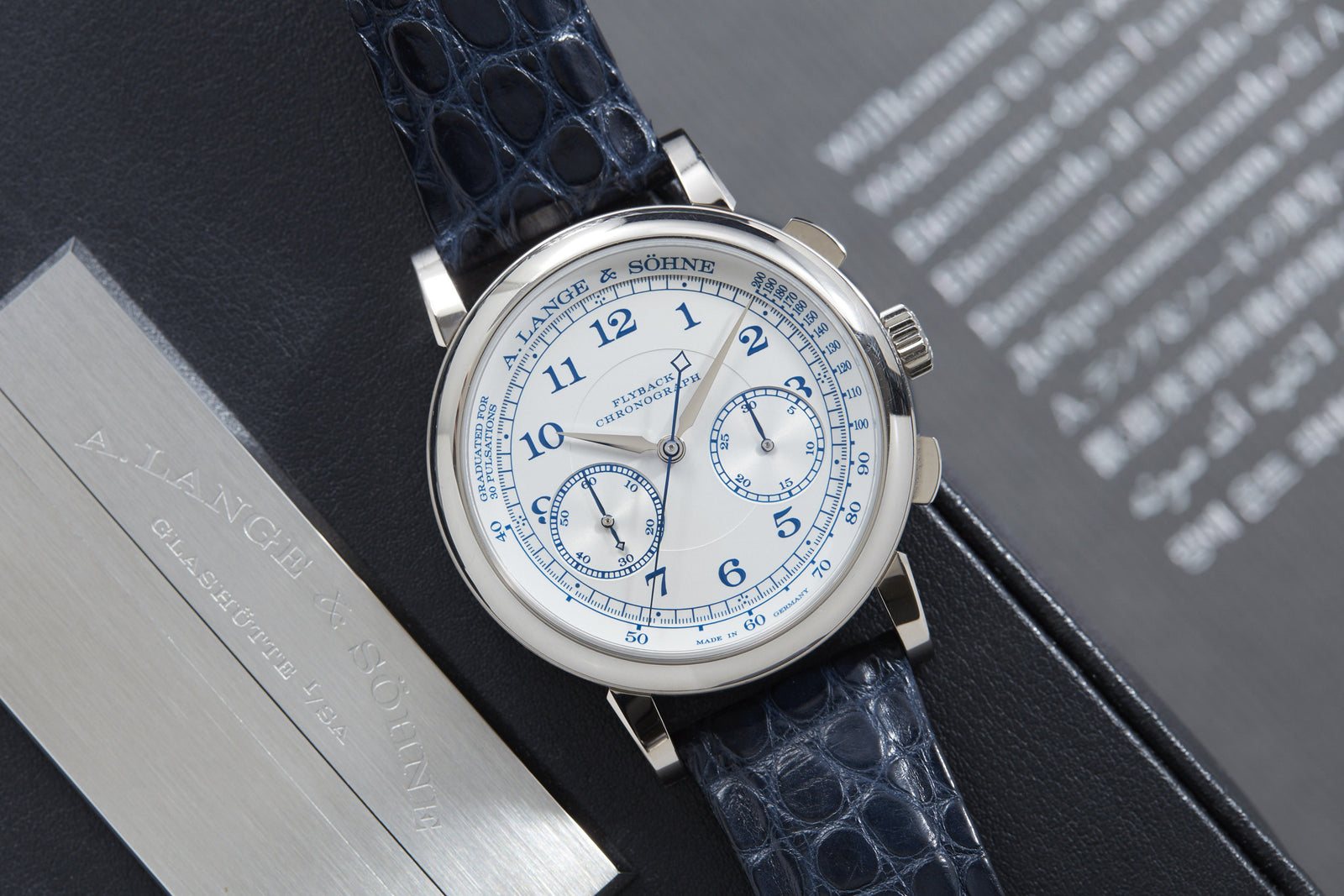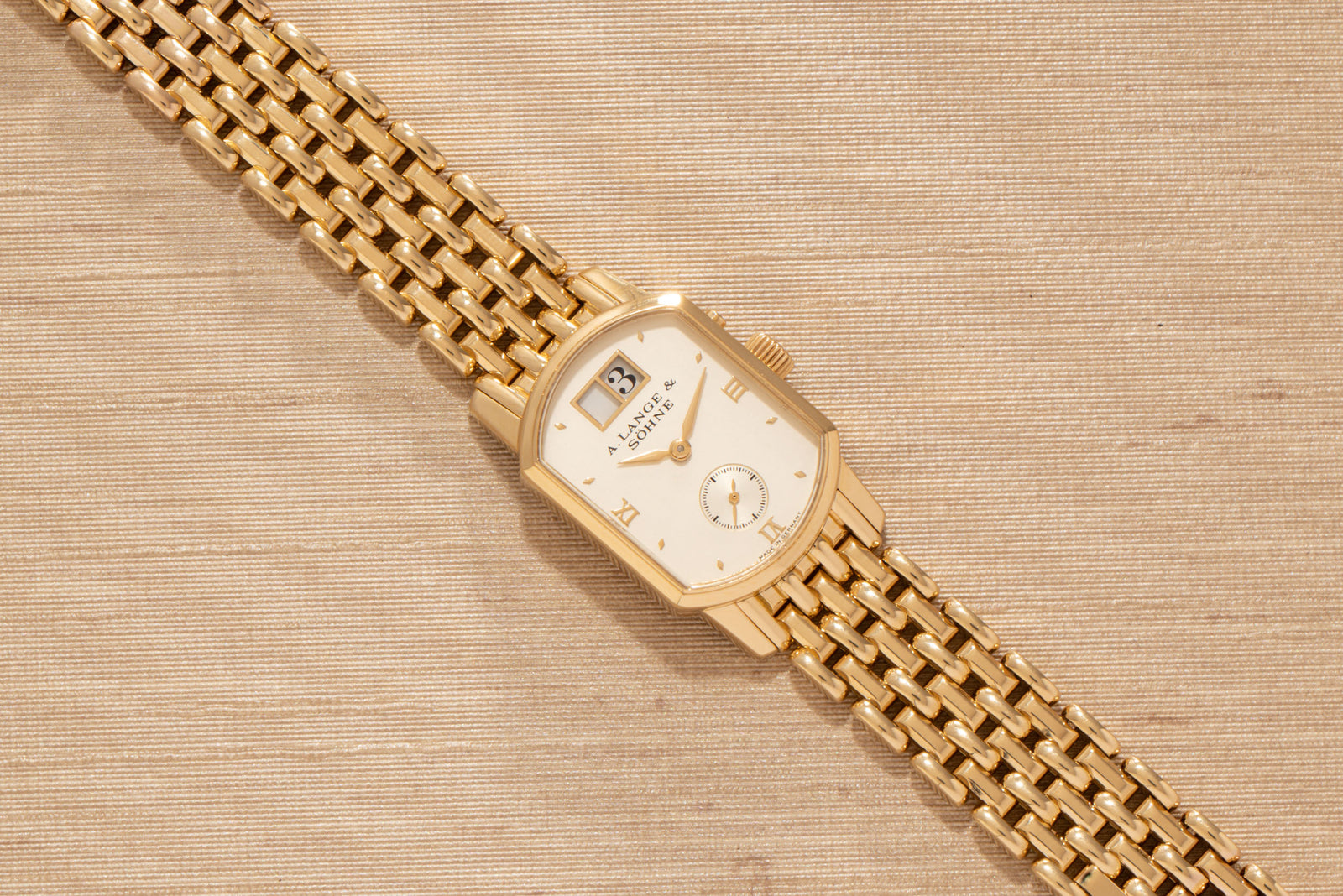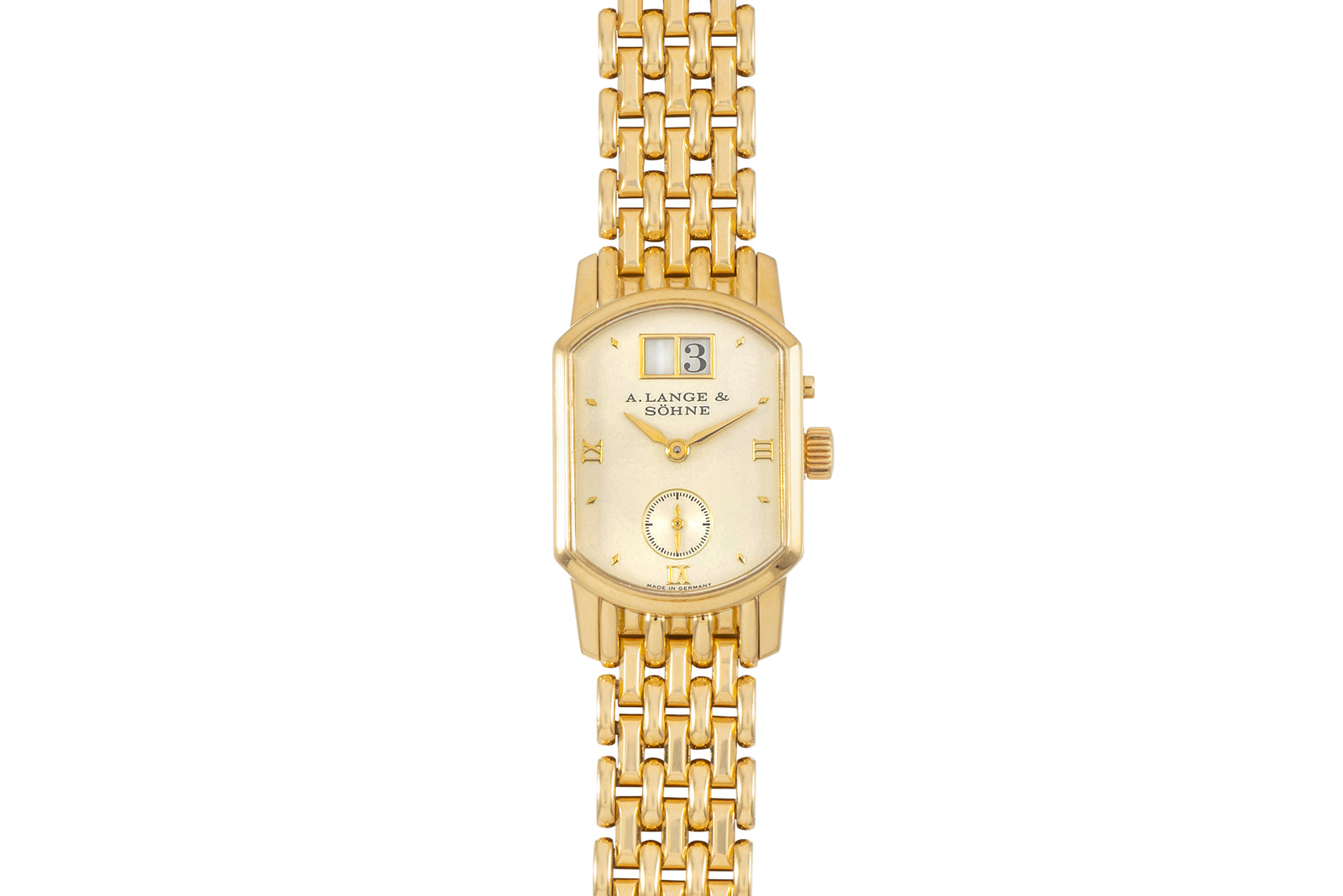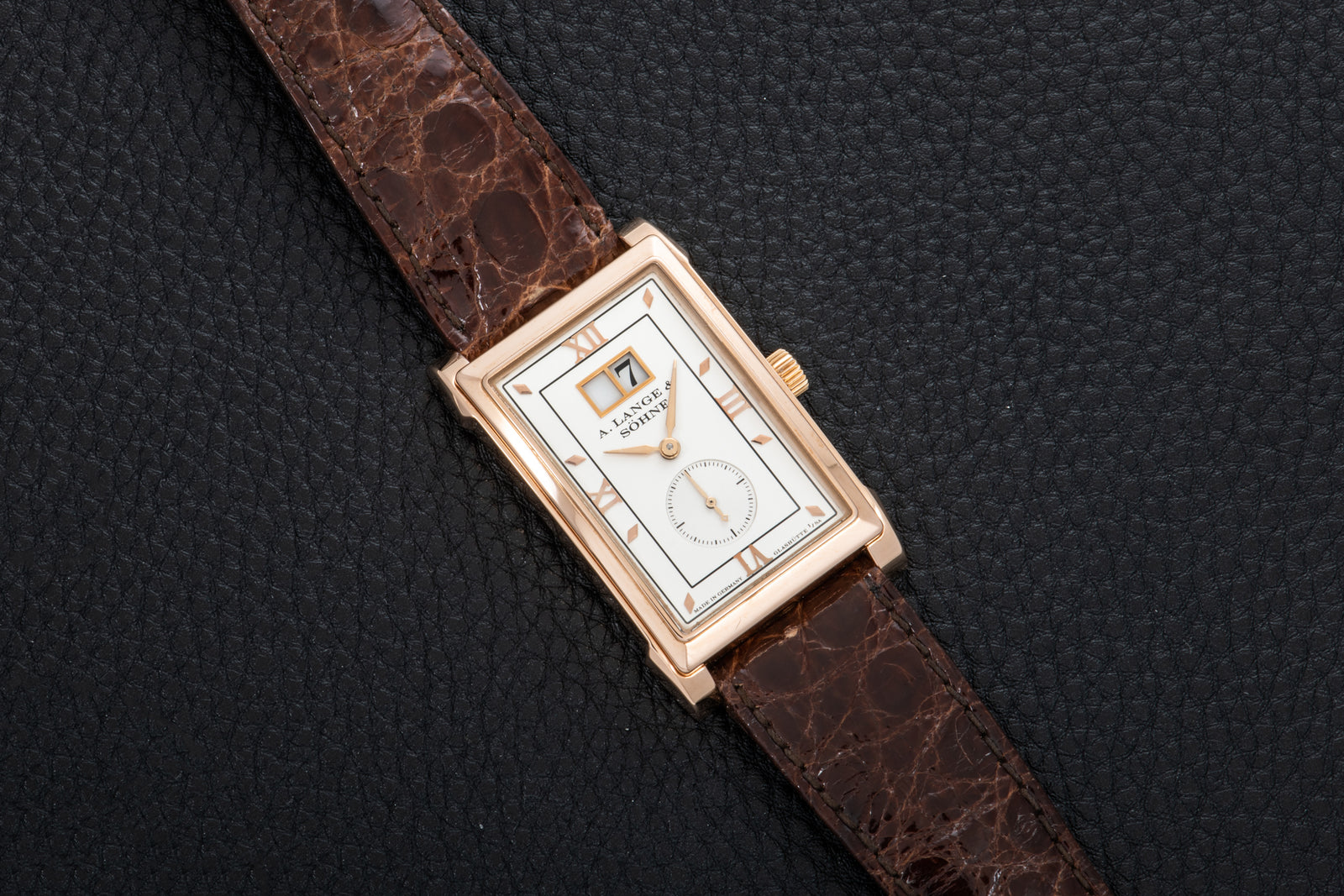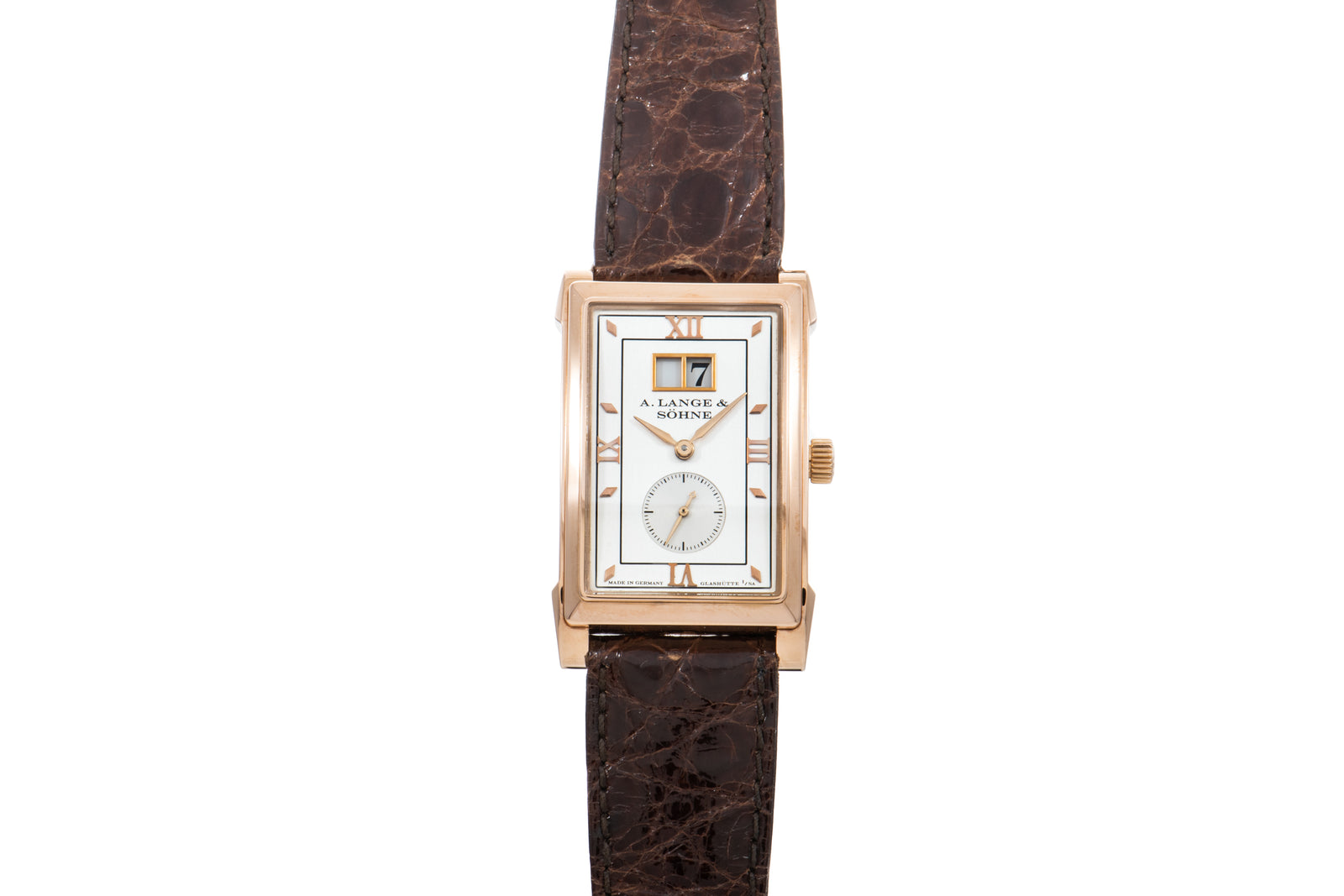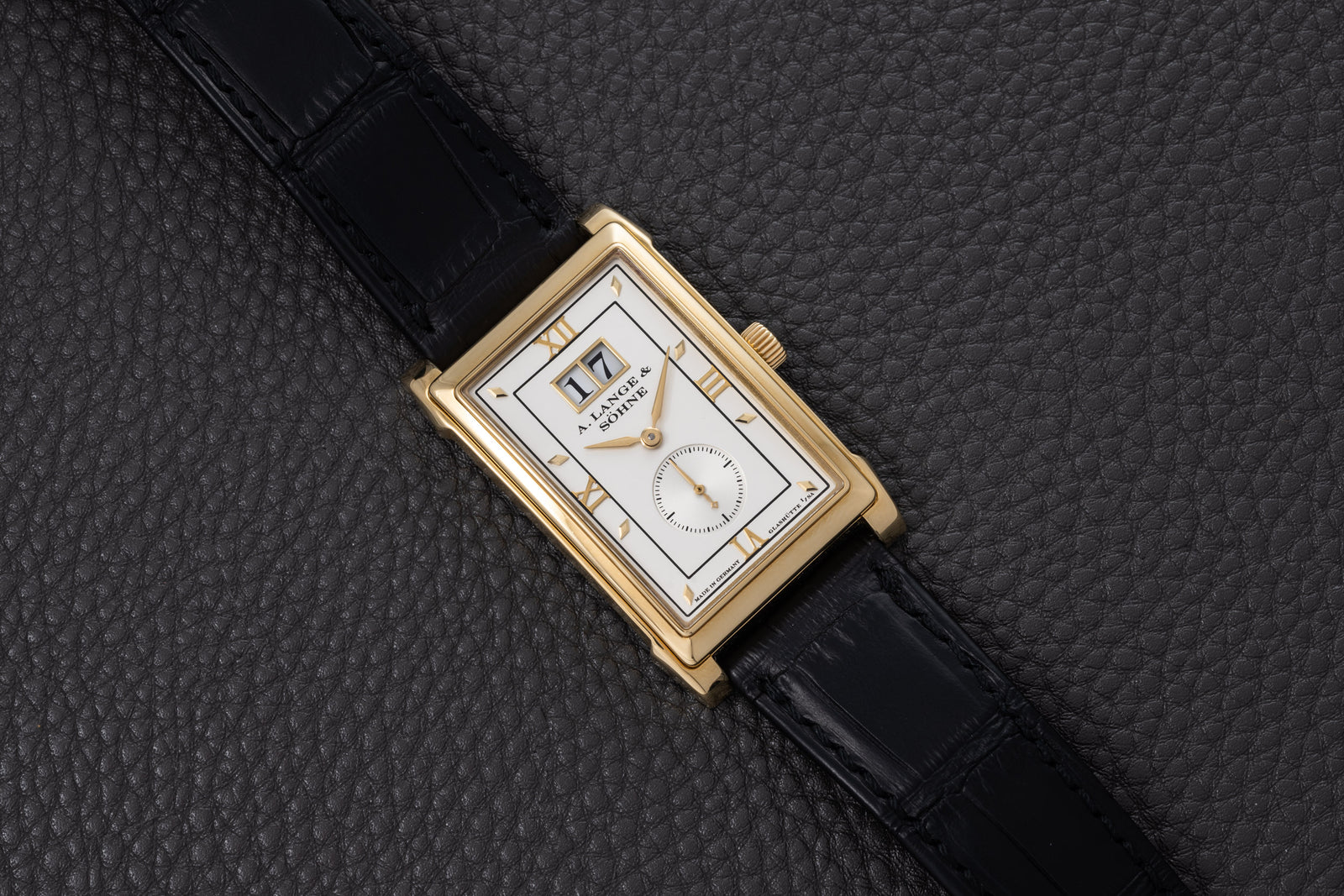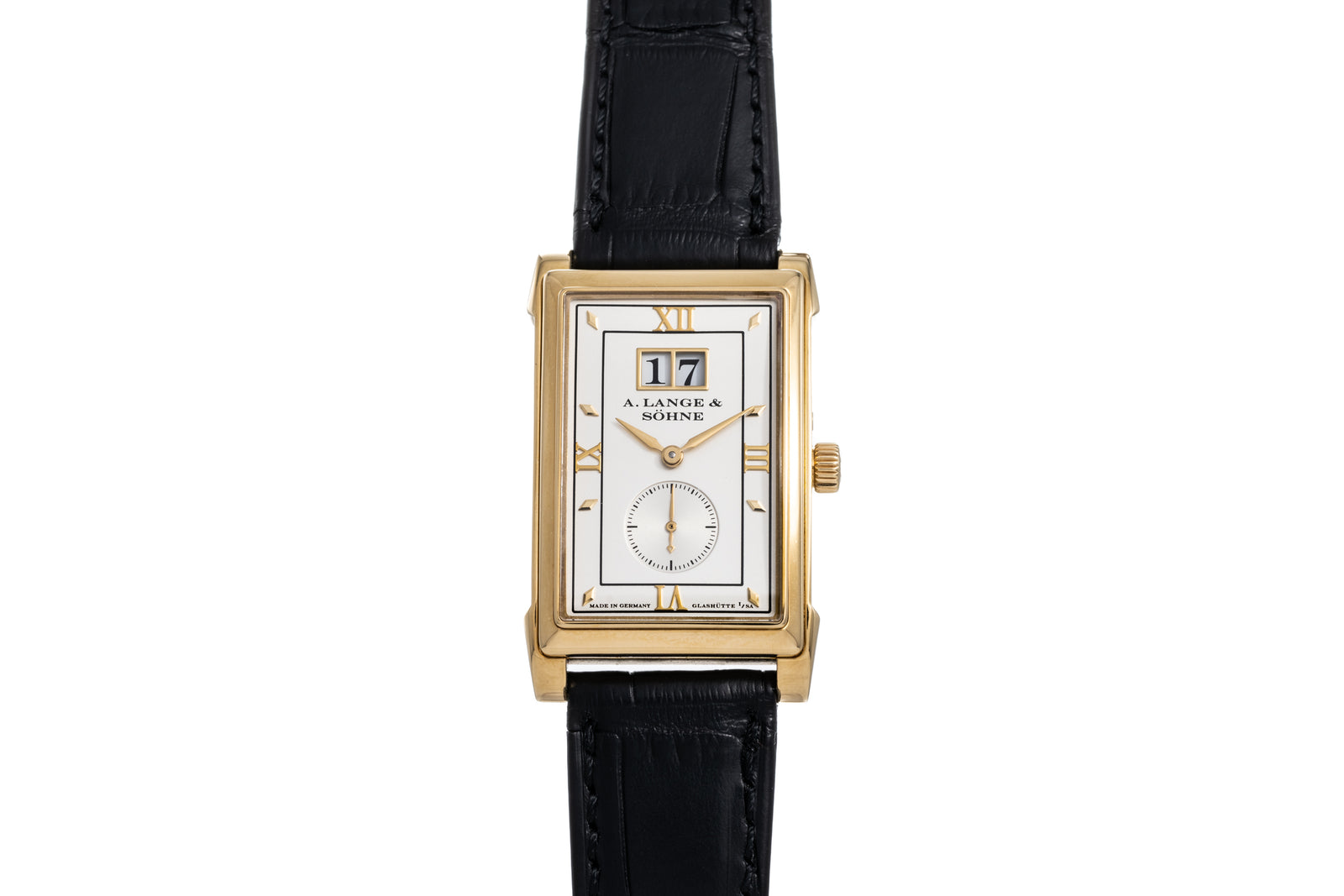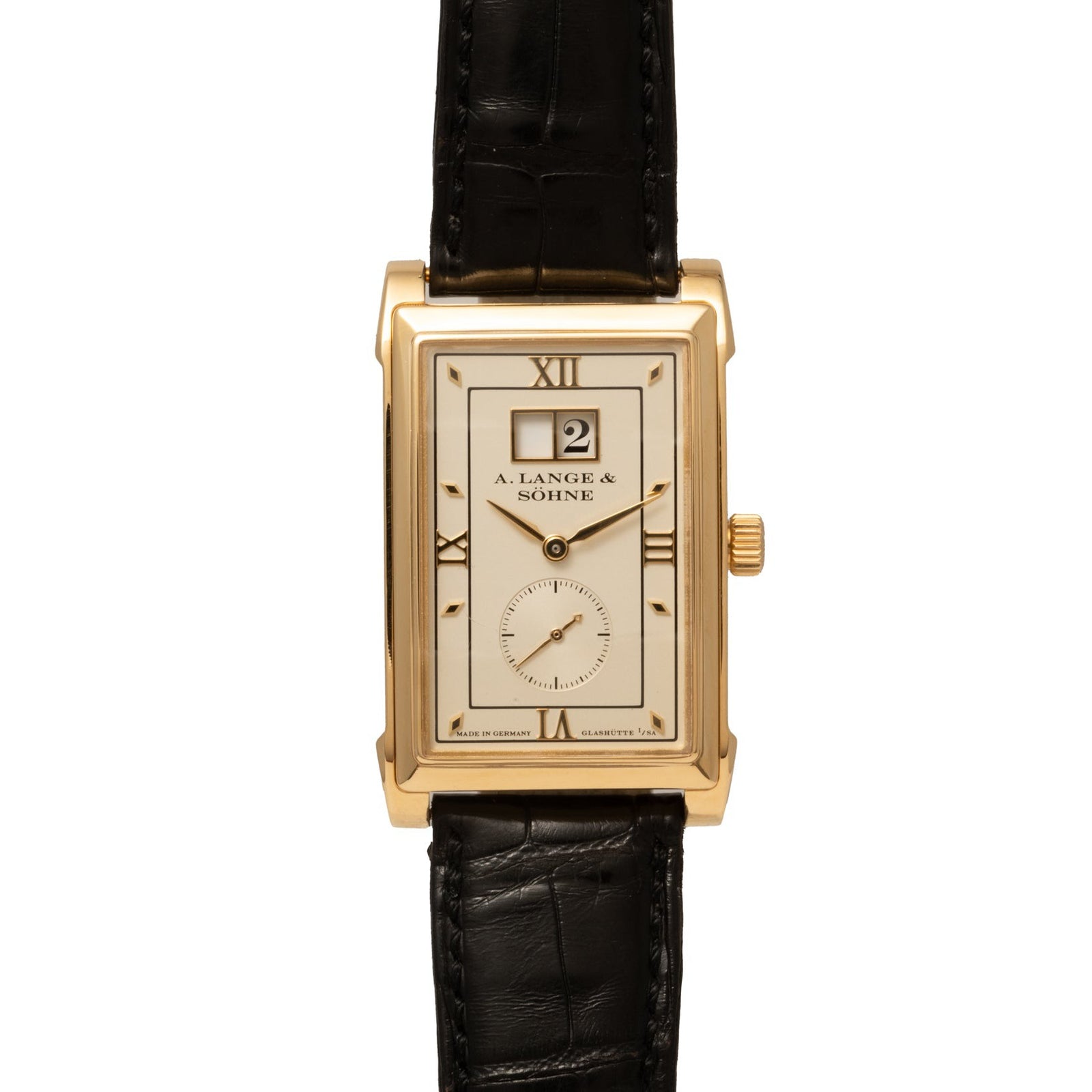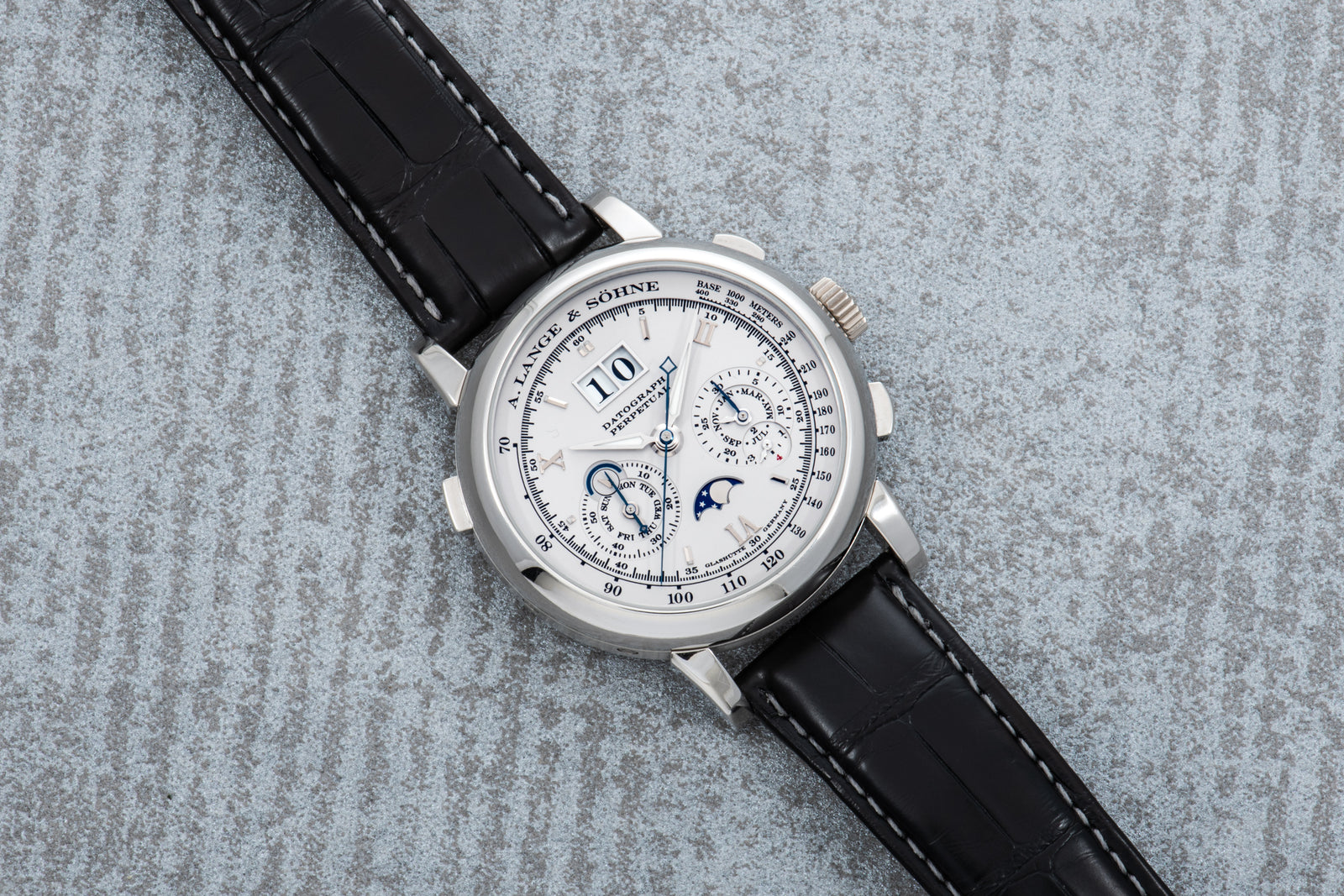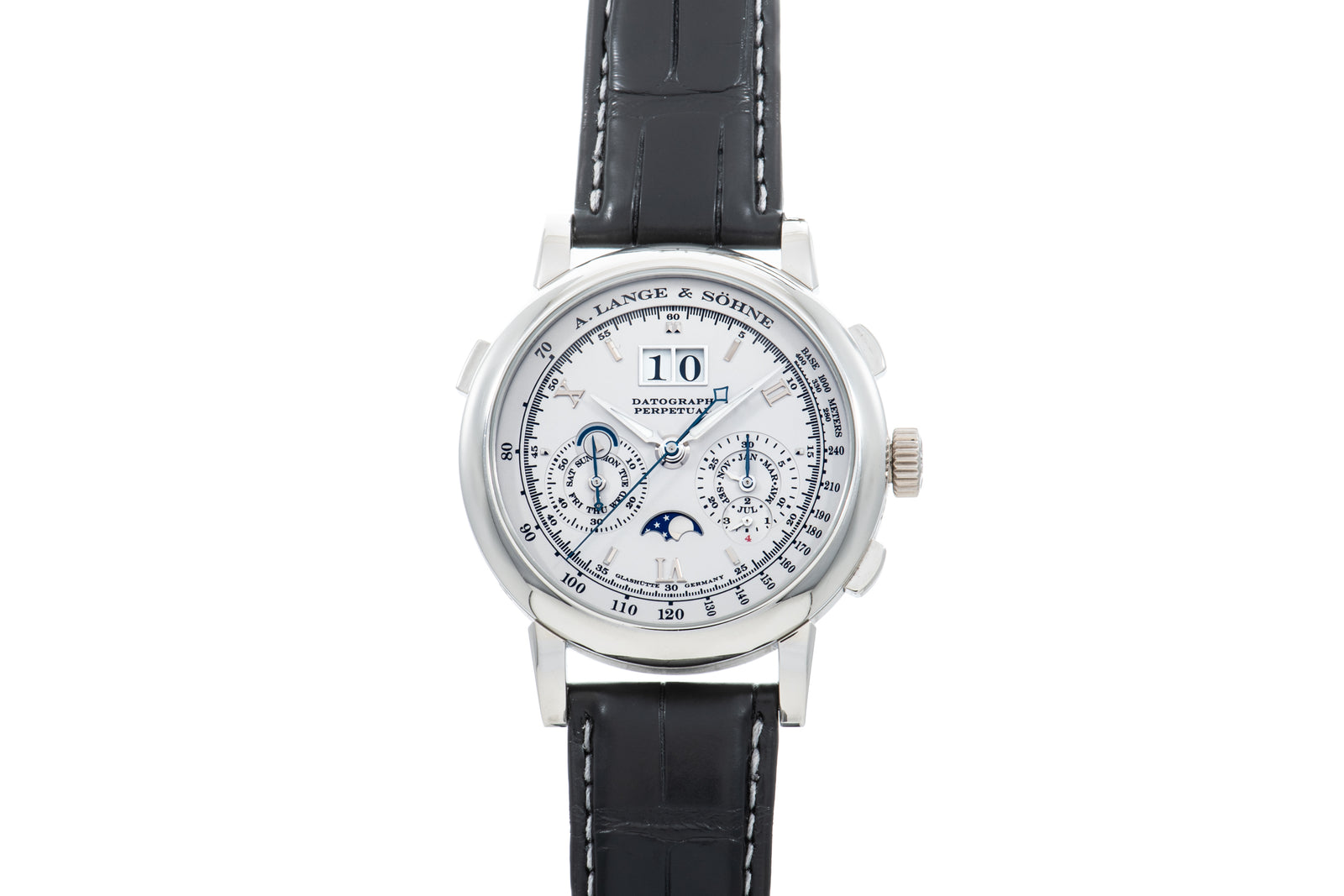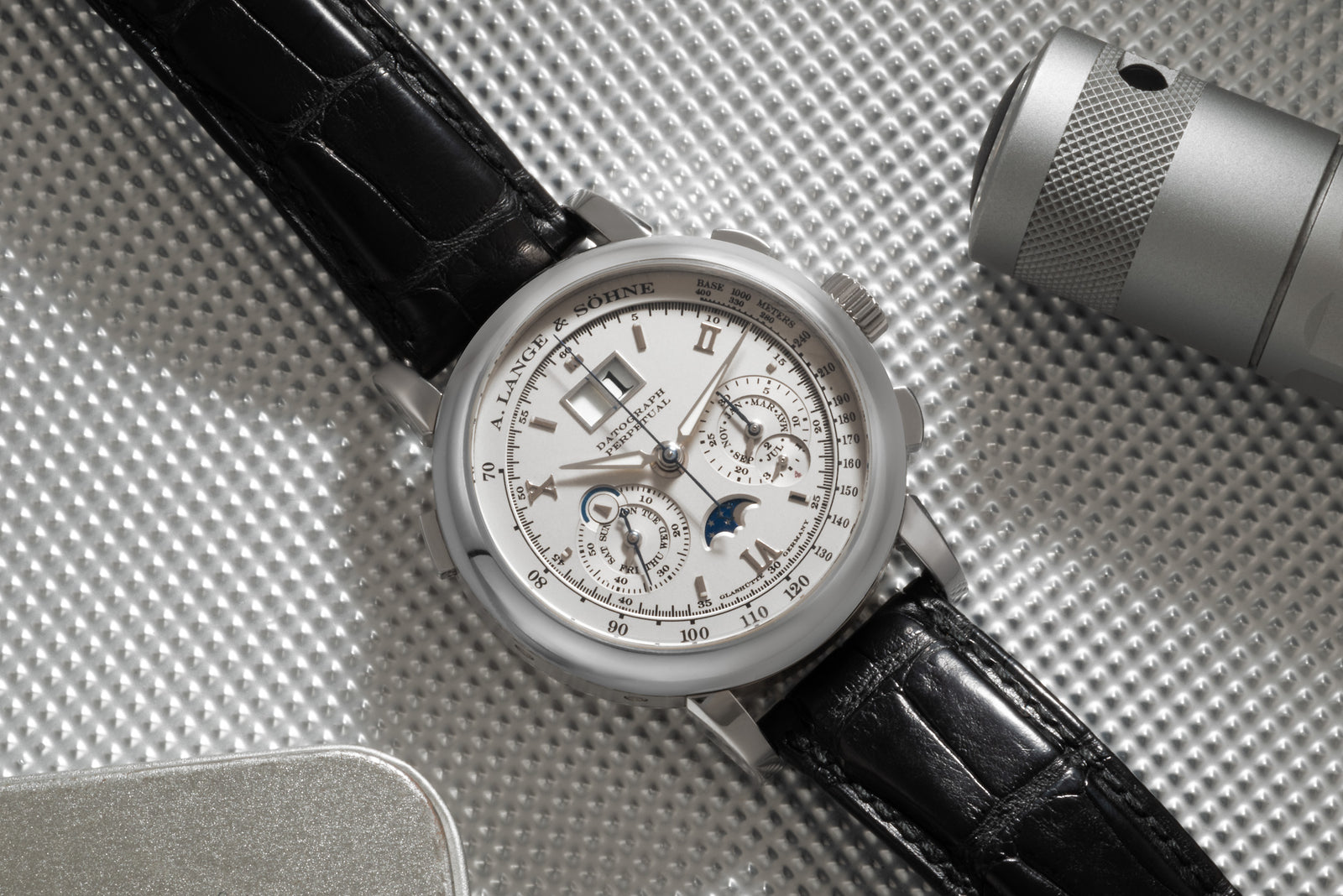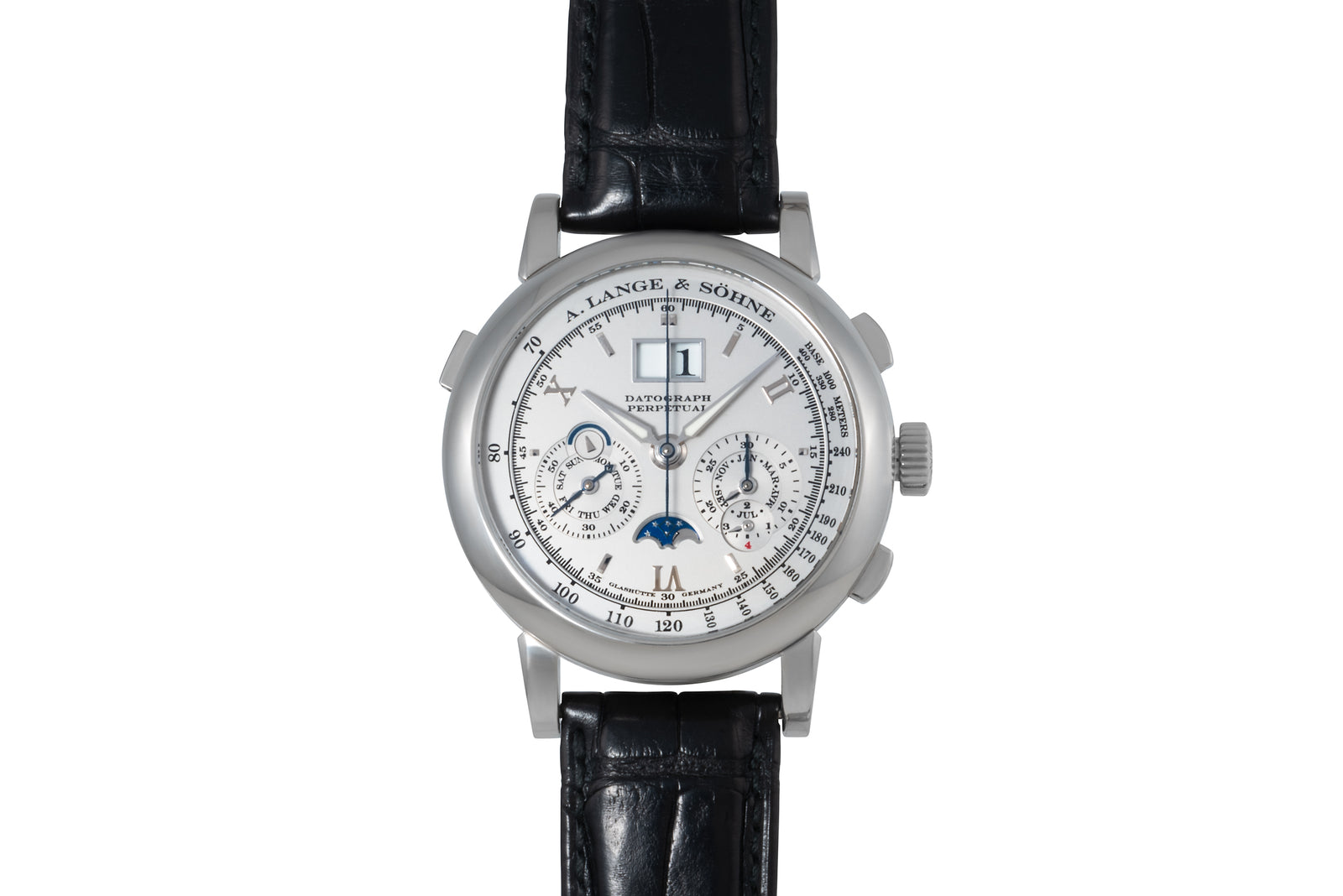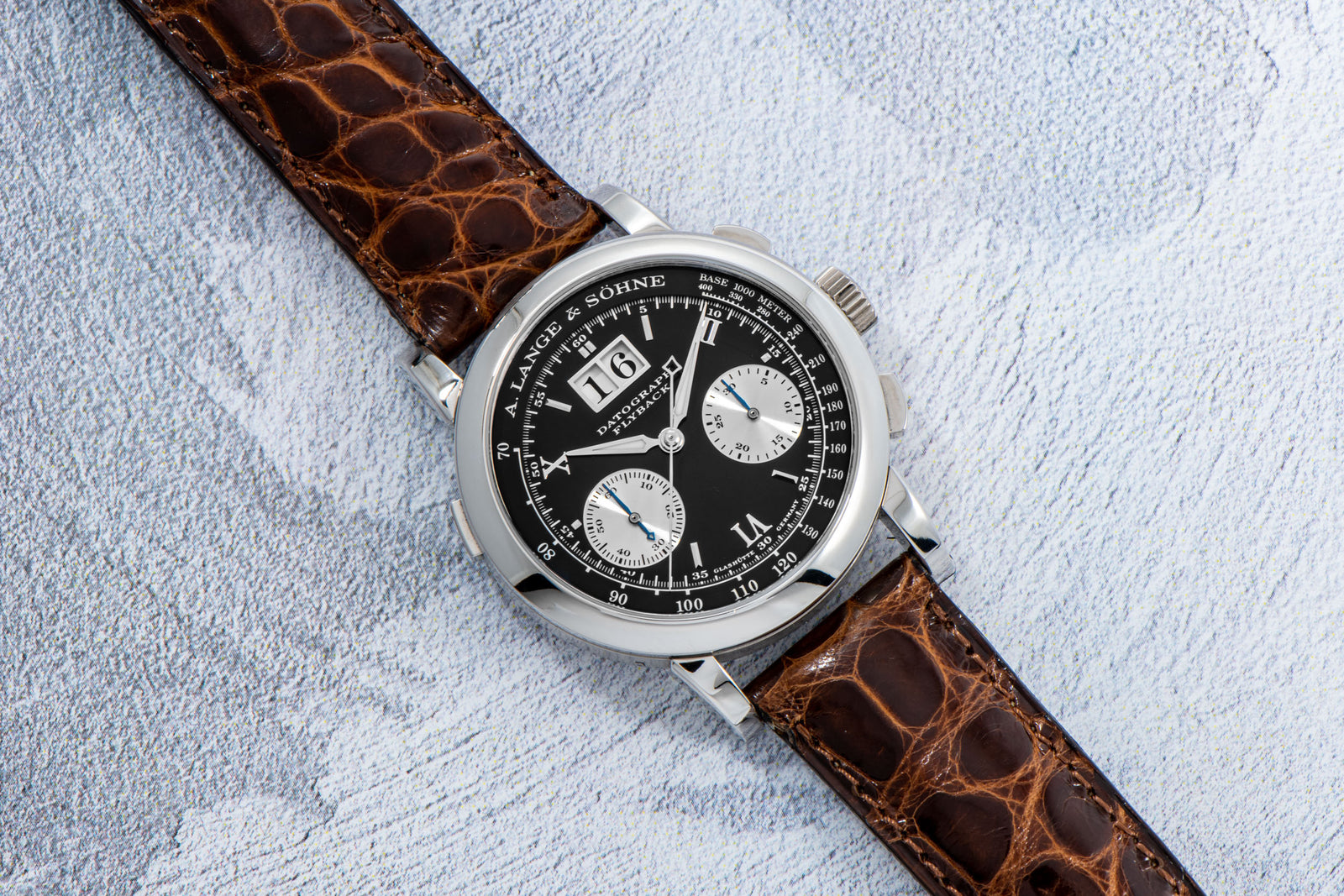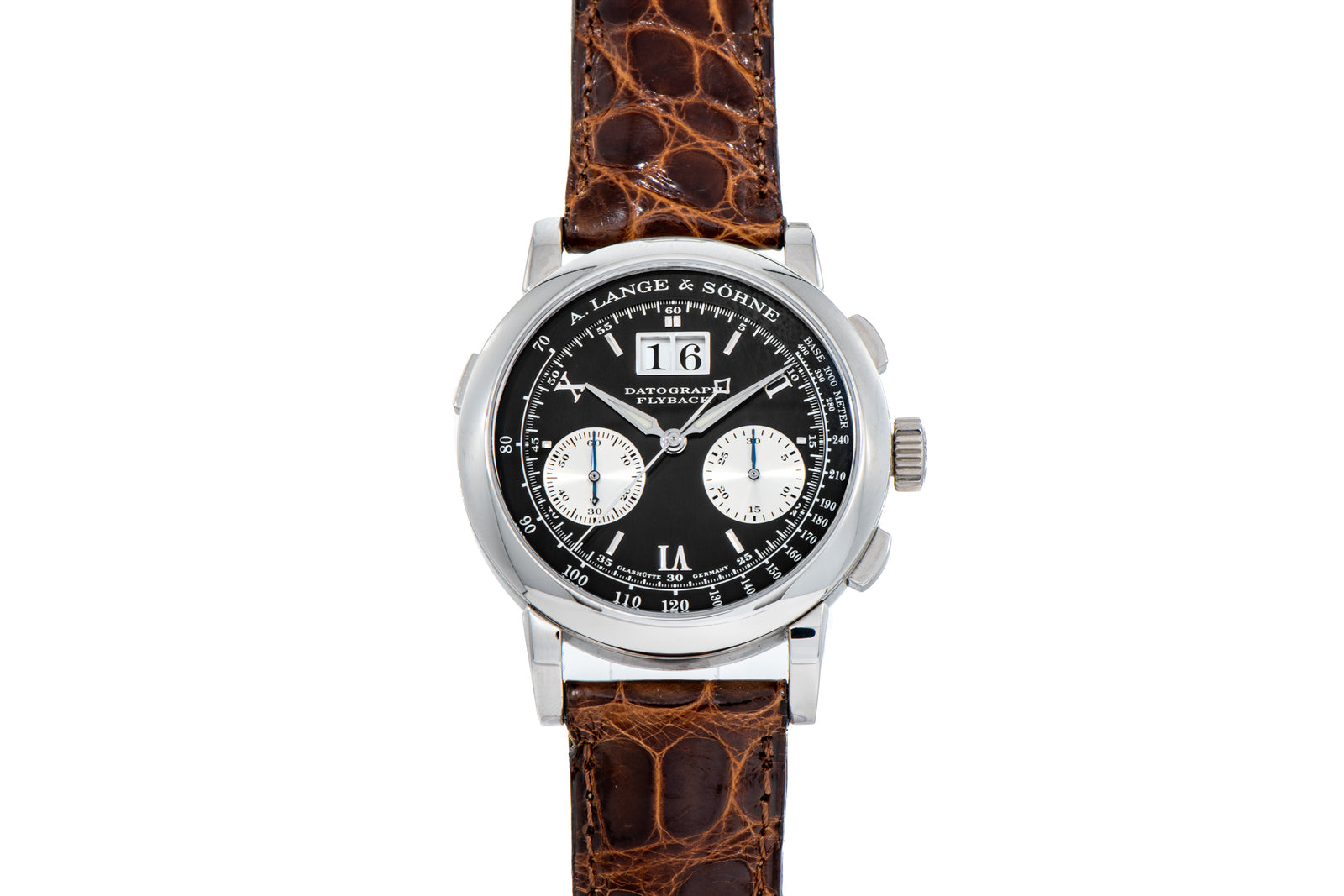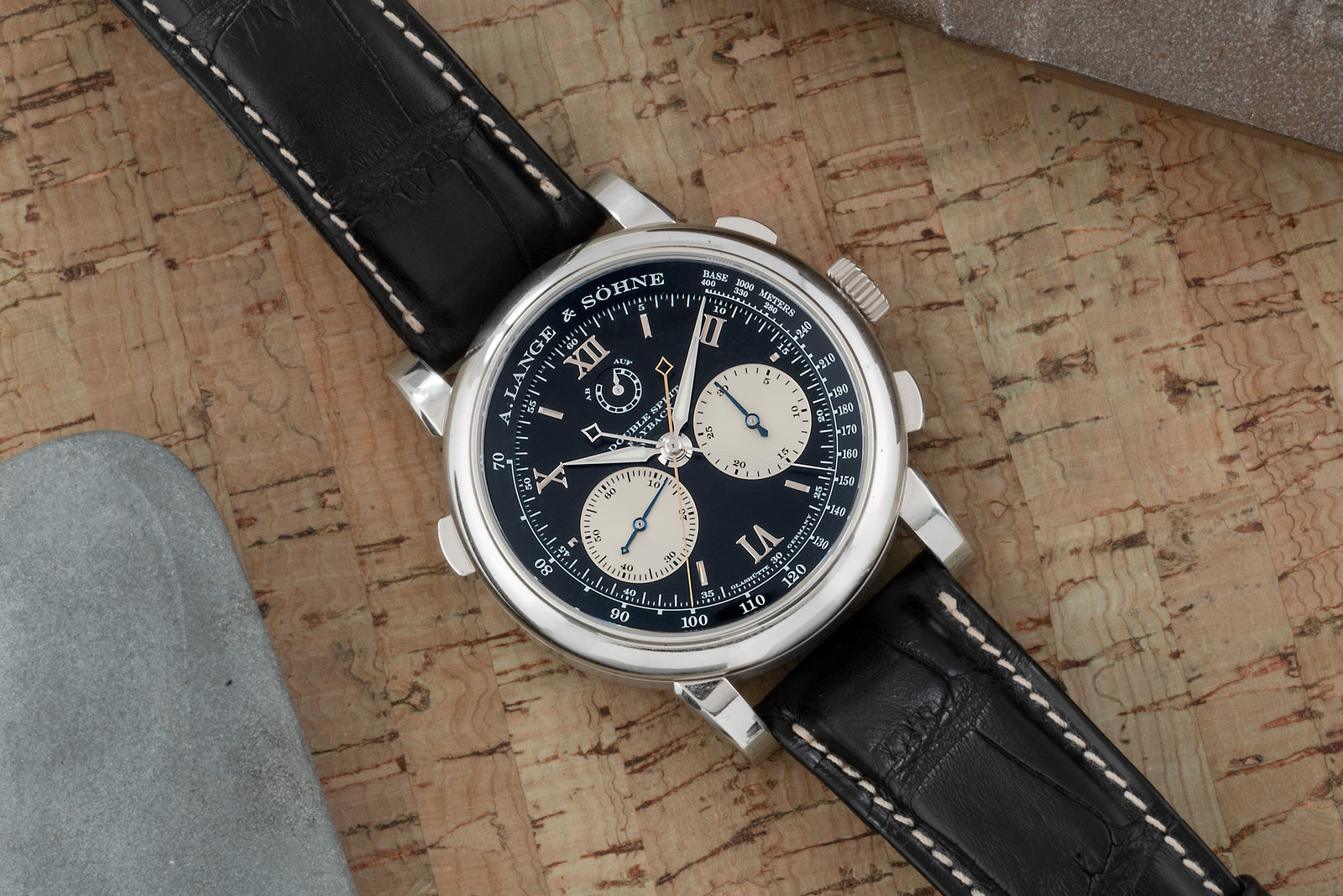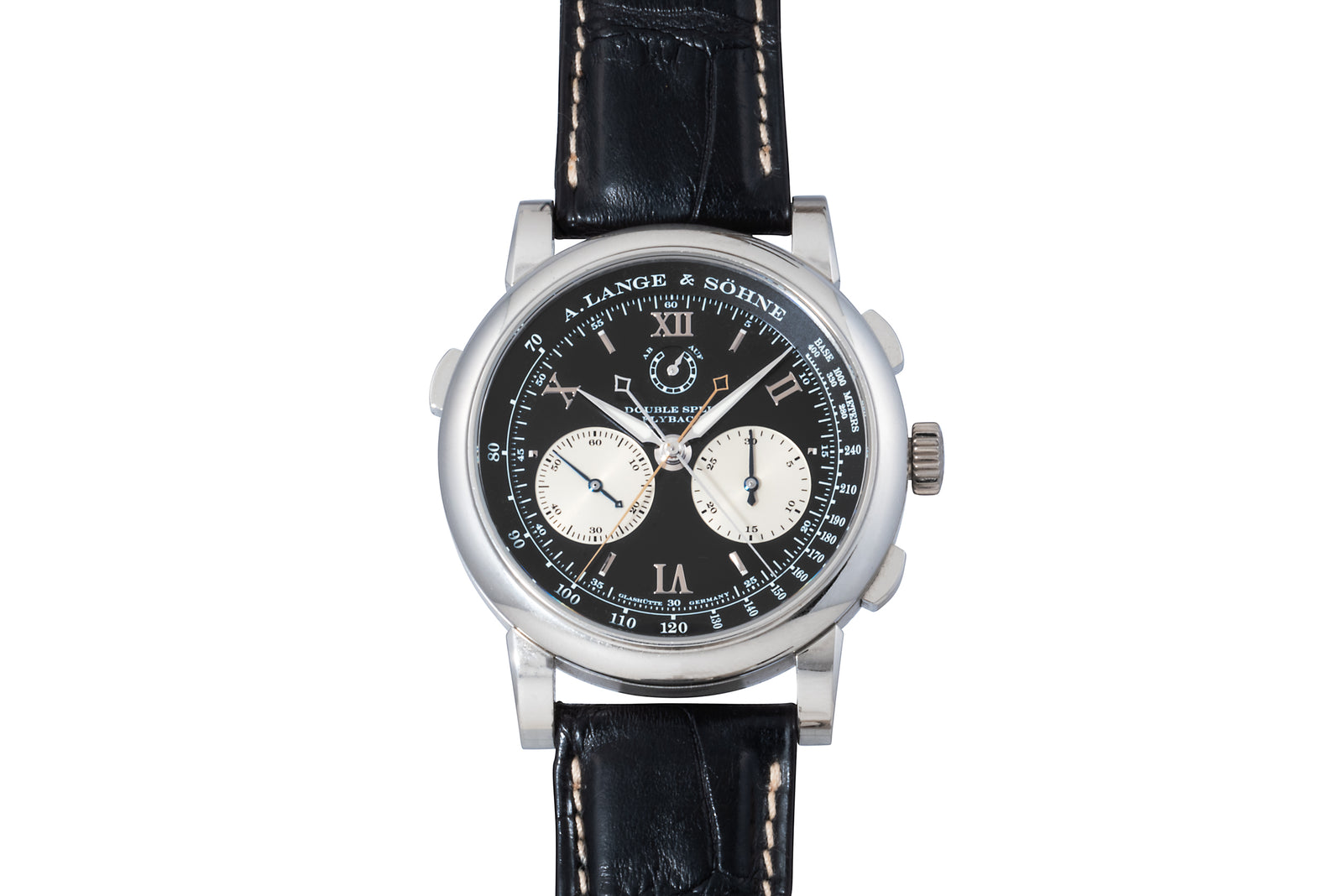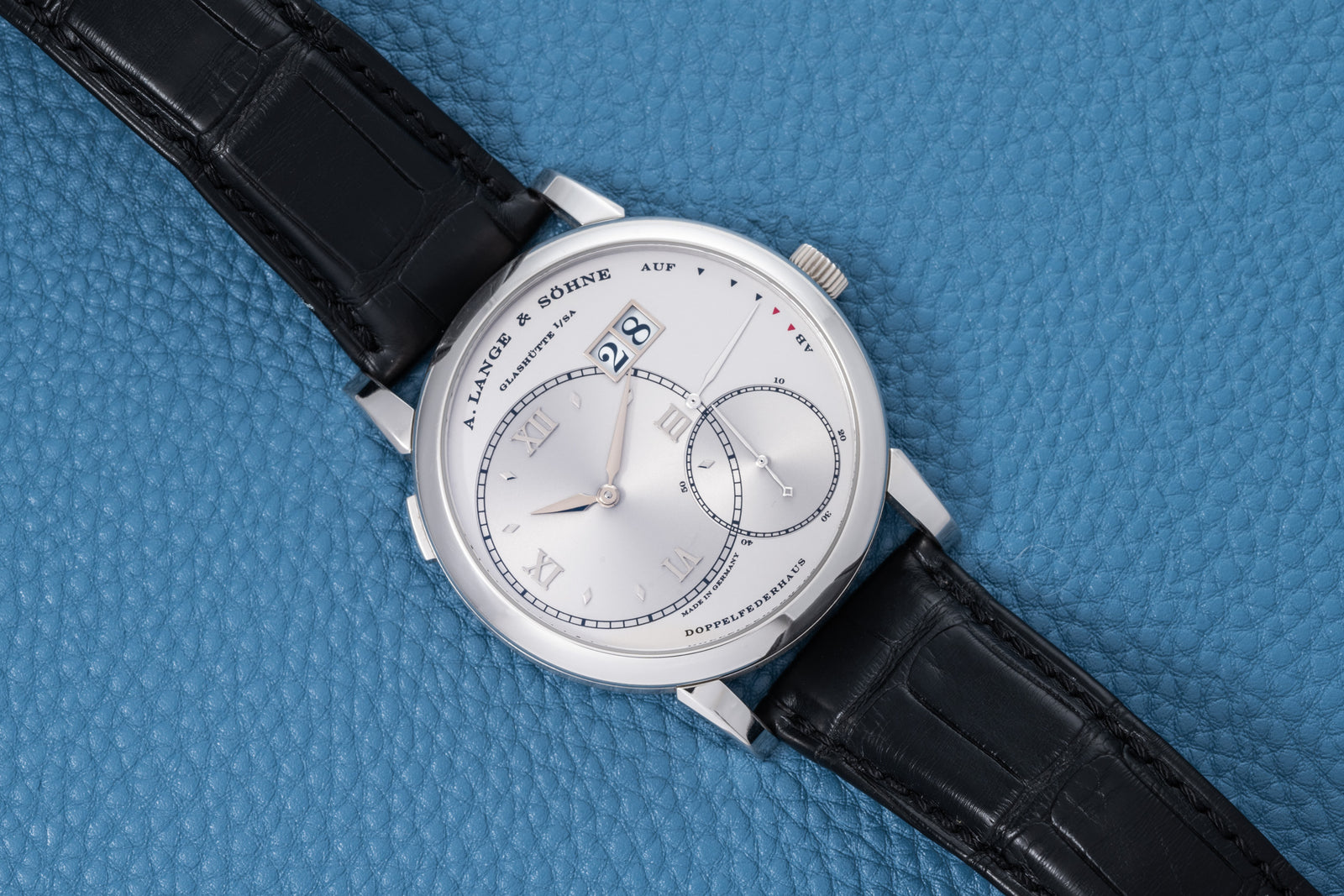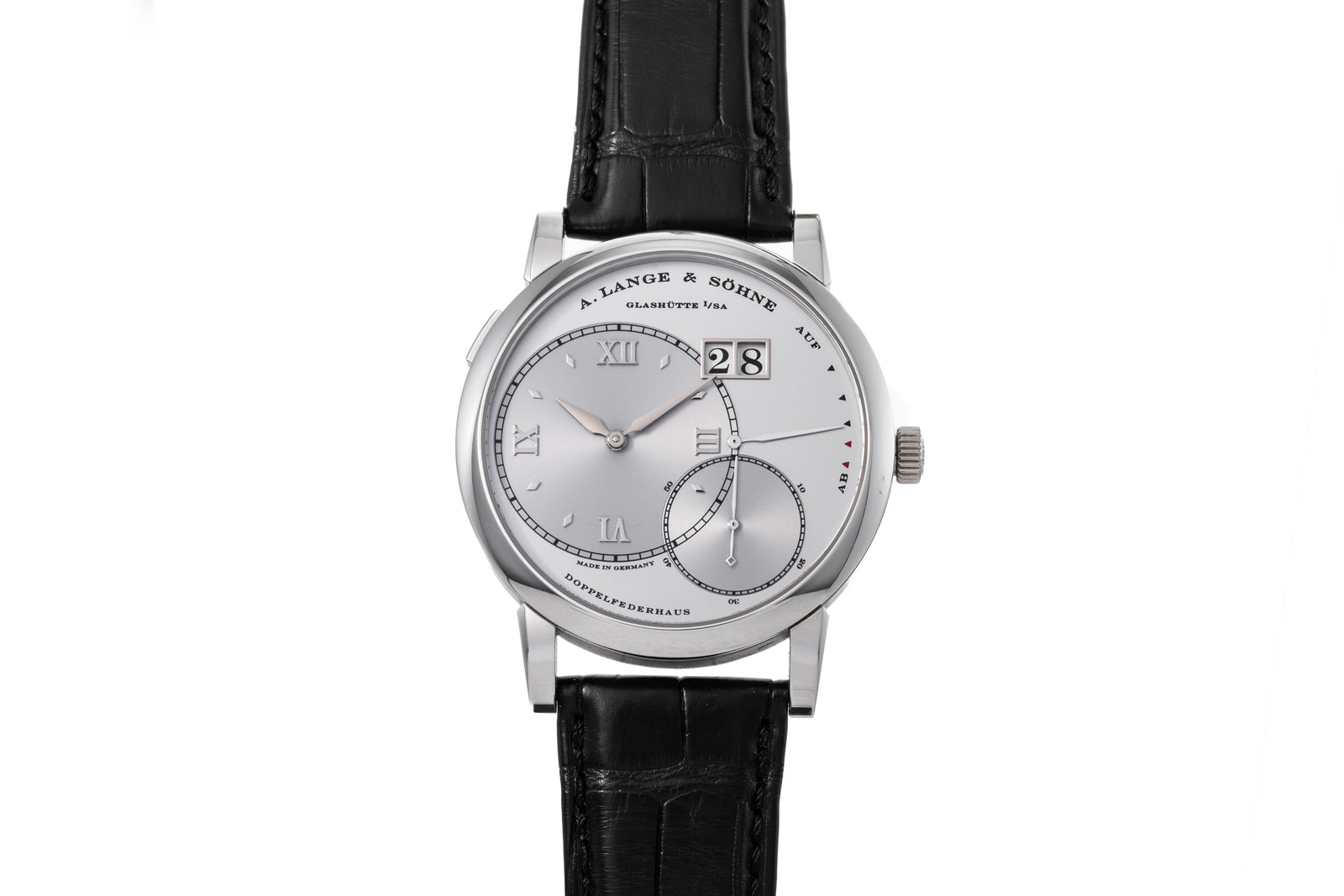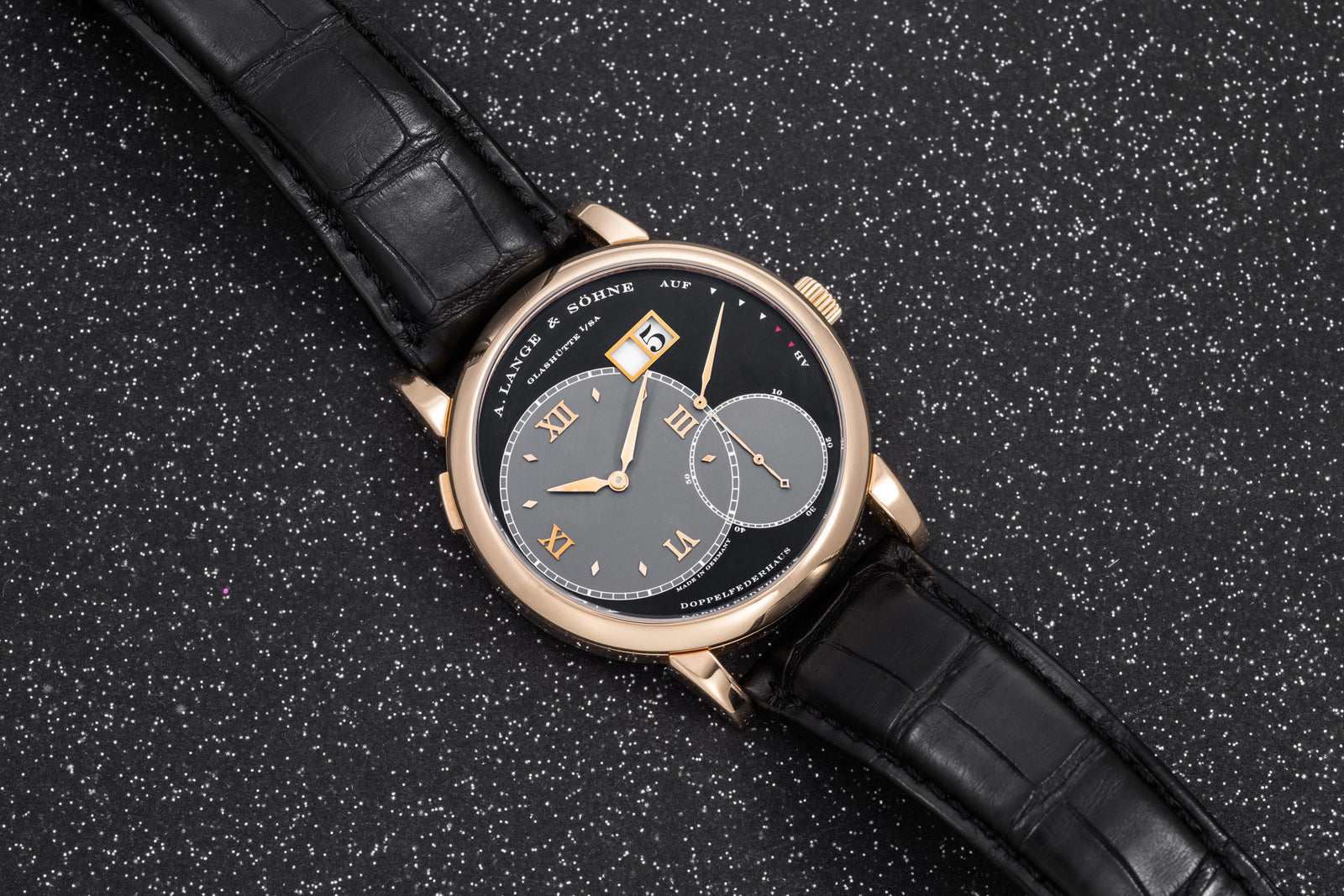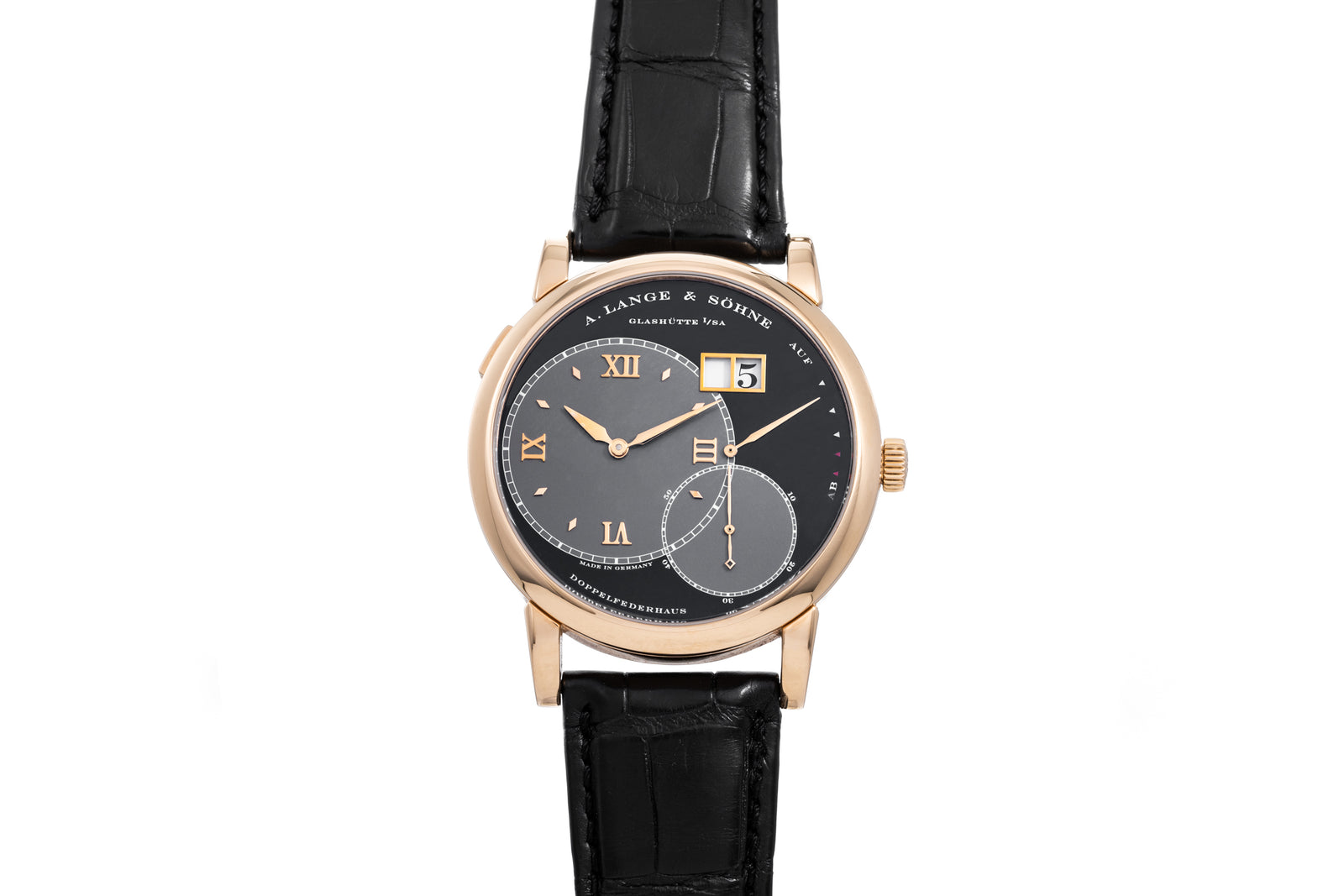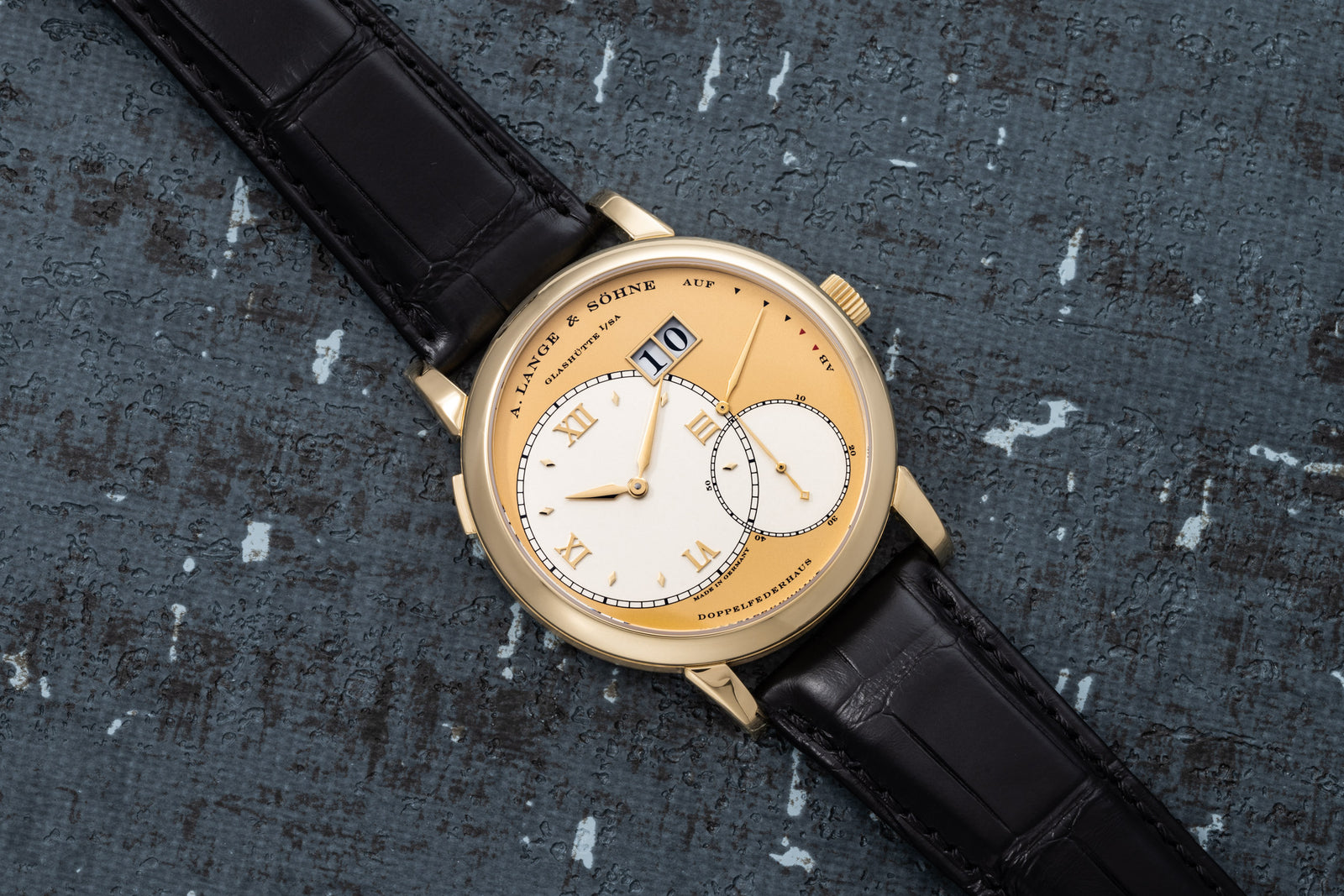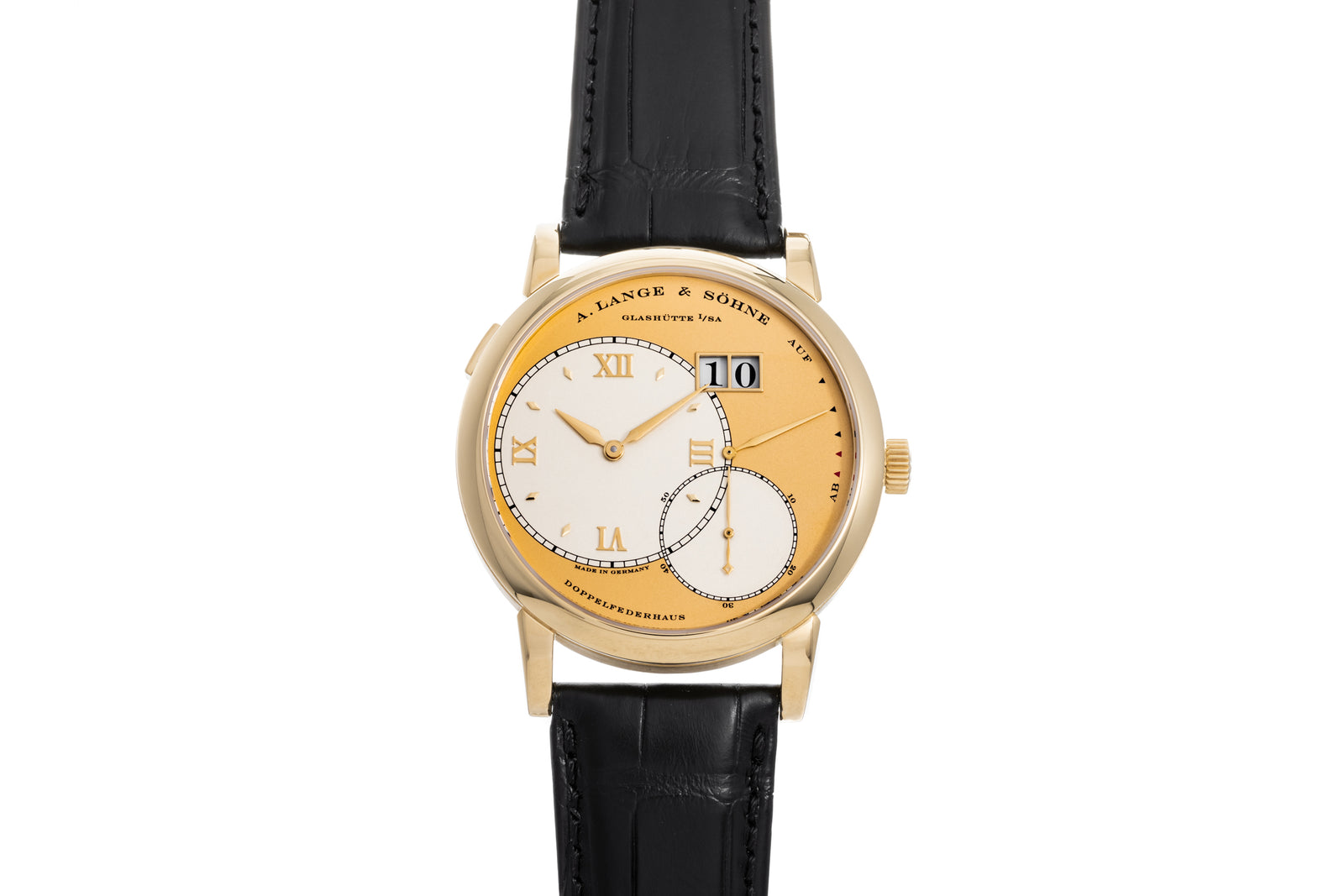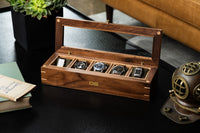Rolex Submariner
- Soldspan>
- Sold
Why We Love it
–
Why We Love it
–1969 marked the year of the crowning achievement of mankind. On July 21, American astronaut Neil Armstrong entered into history when he became the first man to step on the surface of the moon. While Armstrong was taking his historic walk, something equally monumental was happening in the depths of the Gulf Stream.
Oceanographer Jacques Piccard had already plunged to the deepest point of the ocean, the Challenger Deep, in 1960. His vessel was the bathyscaphe Trieste, which was designed by his father Auguste. As Jacques made history by traveling to the deepest part of the ocean, his father did so in the air, reaching a record altitude of 51,775 in 1931 in a special pressurized gondola of his own construction.
Auguste realized that, with slight modifications, the balloon cockpit—which was designed to withstand the extreme pressure at high altitudes—would also withstand the punishing pressure of the deep ocean. The bathyscaphe, first built in 1946, saw use by oceanographers like Jacques Cousteau. Though Auguste Piccard would die of a heart attack in 1962, he at least lived to see his invention—piloted by his son—make history as the first manned vessel ever to reach the bottom of the Challenger Deep.
By 1969, as mankind was extending the boundaries of human spaceflight, Jacques Piccard sought to test the ability of the human body to remain beneath the surface of the waves for extended periods of time.
The keel of the submersible Ben Franklin was laid in 1966 in Monthey, Switzerland, at the fabrication plant of Giovanola Freres SA, who in addition to the submarines developed for the Piccards were also prominent manufacturers of roller coasters. At 48 feet long, the Ben Franklin was designed to withstand a crush depth of 4000 feet, or 1200 meters. The hull also included 29 observation portholes at Piccard’s insistence, which raised the objections of the engineers at Giovanola (portholes being, in their minds, fatal weak points in the construction of the hull).
The Ben Franklin was launched on July 14, 1969 off Palm Beach, housing a crew of six, with Piccard helming the expedition. After 30 days of floating in the warm waters of the Gulf Stream, the Ben Franklin broke the surface of the waves on August 14. It had traveled 1444 miles, ending up off the coast of Halifax, Nova Scotia.
After Piccard, the Ben Franklin would go on to ferry none other than Robert Ballard, the discoverer of the Titanic, in his first dive as a full-time marine scientist at Woods Hole Oceanographic Research Institute in the 1970s.
Rolex has long been at the forefront of producing waterproof wristwatches, and has had ties to Piccard himself. The manufacture even designed a special watch, the Deep Sea Special, that was strapped to the exterior of the Trieste as Jacques Piccard made his record-breaking descent to Challenger Deep. In a telegram Piccard sent to Rolex HQ in Geneva, he wrote, “Happy to announce that your watch works as well at 11,000 meters as it does on the surface.”
Released in the late 1960s, the Rolex Submariner Reference 1680 also made history, but on a much smaller scale. Previous references of the Submariner—such as the matte dial, “meters first” Reference 5513 beloved by collectors of vintage Rolex and divers alike—eschewed a date aperture. It’s not that a date window on a dive watch was completely unheard-of; Blancpain had been putting a date window on civilian versions of the Fifty Fathoms since at least 1960.
But the addition of a date window on the Submariner made waves, and it's no question that the 1680 laid the keel for the date models of Submariner that would follow.
This 1680 dates from the late 1970s, and thus maintains the matte dial and tritium indices that collectors of vintage Rolex so love about the 5513. There's definitely signs that it was used to do what it was meant to do, evident in the creamy patina of the hour markers and hands. Looking at it, you can practically taste the sea salt on your lips—and isn't that what a Submariner is for?
A:S Guarantee
+
A:S Guarantee
+Our Pledge
Analog:Shift stands behind the authenticity of our products in perpetuity.
Condition
Since our pieces are vintage or pre-owned, please expect wear & patina from usage and age. Please read each item description and examine all product images.
Warranty
We back each Analog:Shift vintage timepiece with a one-year mechanical warranty from the date of purchase.
International Buyers
Please contact us prior to purchase for additional details on shipping and payment options.
Shipping & Returns
+
Shipping & Returns
+All of our watches include complementary insured shipping within the 50 states.
Most of our products are on hand and will ship directly from our headquarters in New York City. In some cases, watches will be shipped directly from one of our authorized partners.
We generally ship our products via FedEx, fully insured, within 5 business days of purchase. An adult signature is required for receipt of all packages for insurance purposes. Expedited shipping is available at an additional cost. We are also happy to hand deliver your purchase in Manhattan or you may pick it up at our showroom.
Returns must be sent overnight or by priority international delivery, fully insured and paid for by the customer. A restocking fee may apply. Watches must be returned in the same condition as initially shipped.
We welcome international buyers, please contact us prior to purchase for additional details on shipping and payment options.
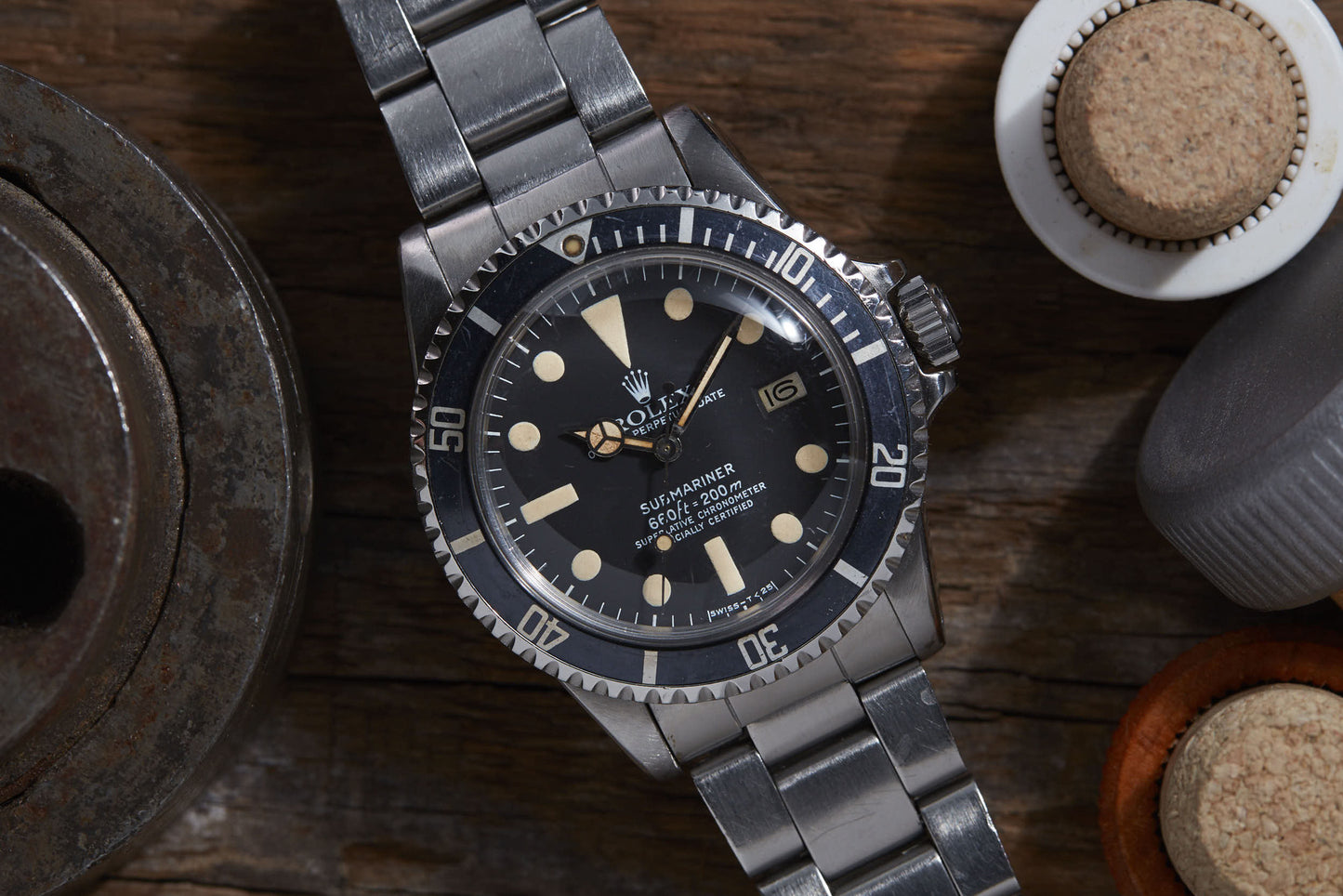
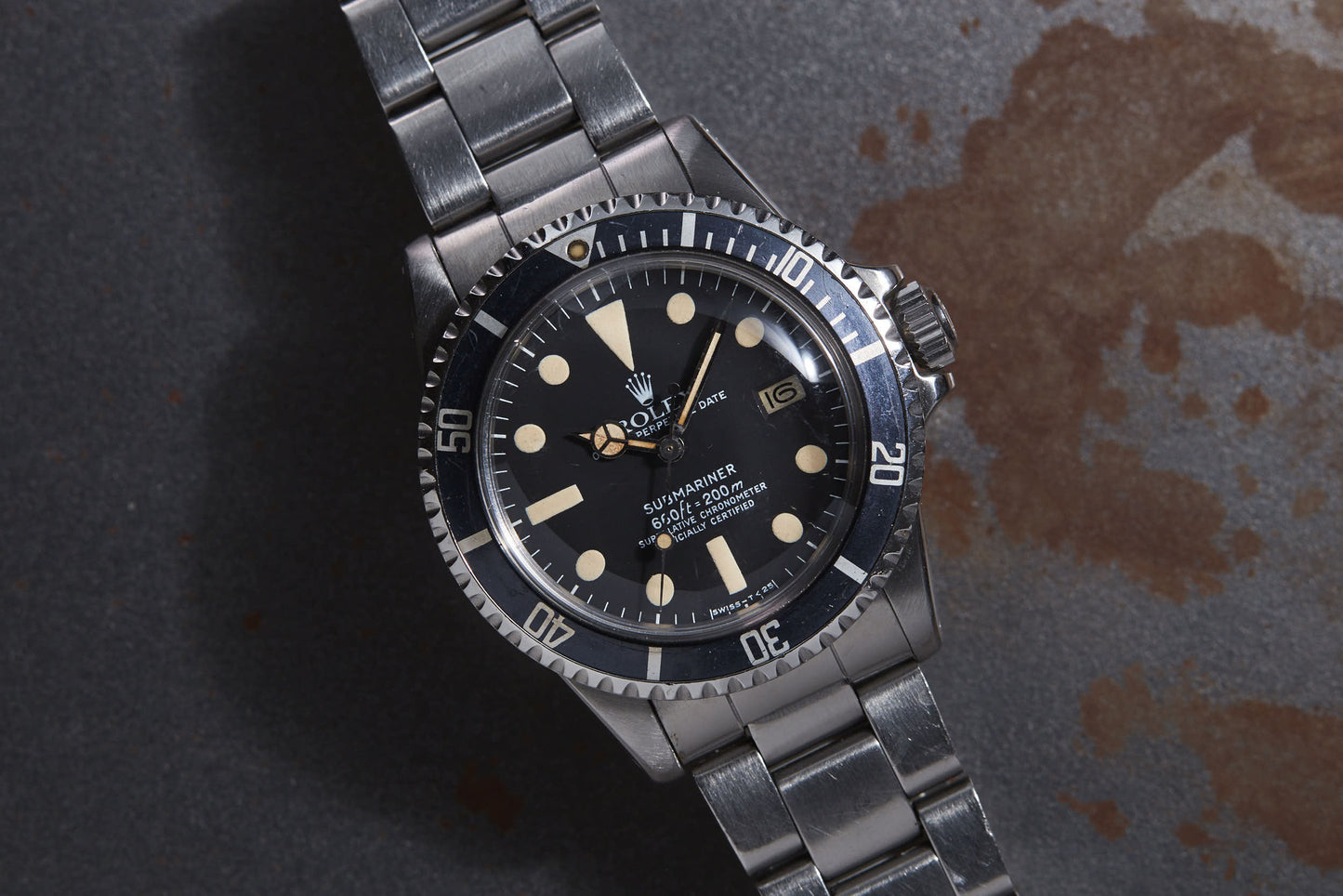
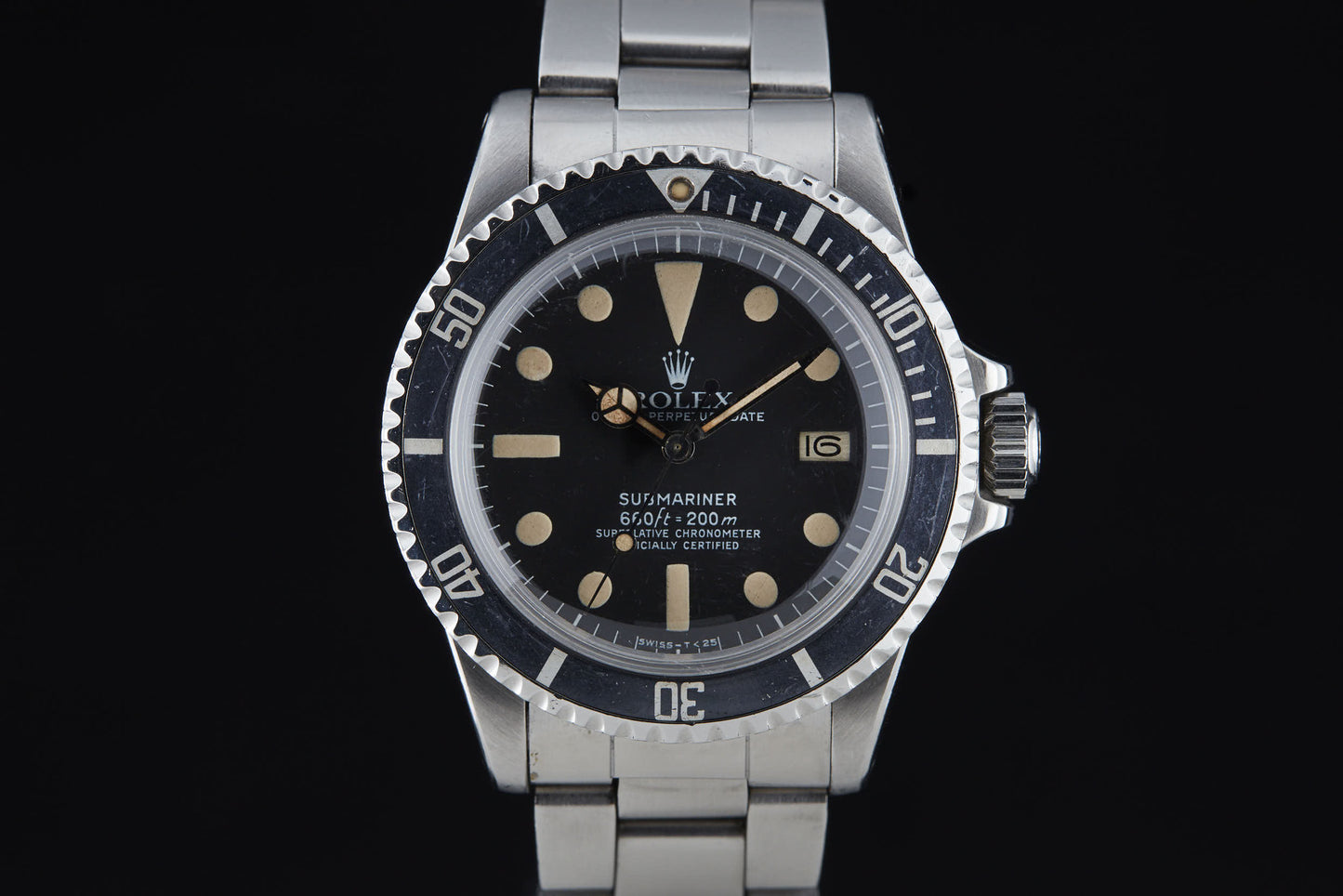
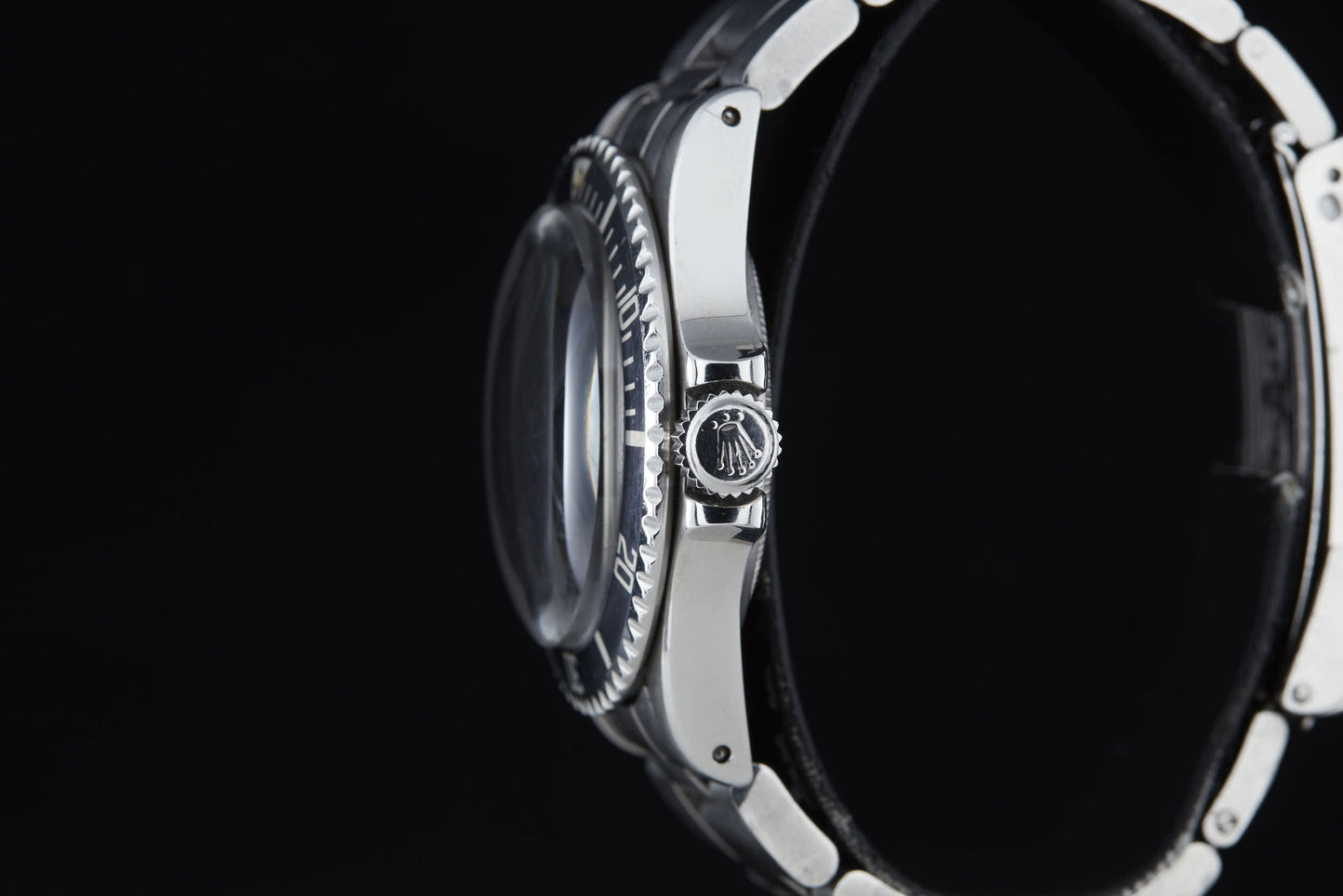
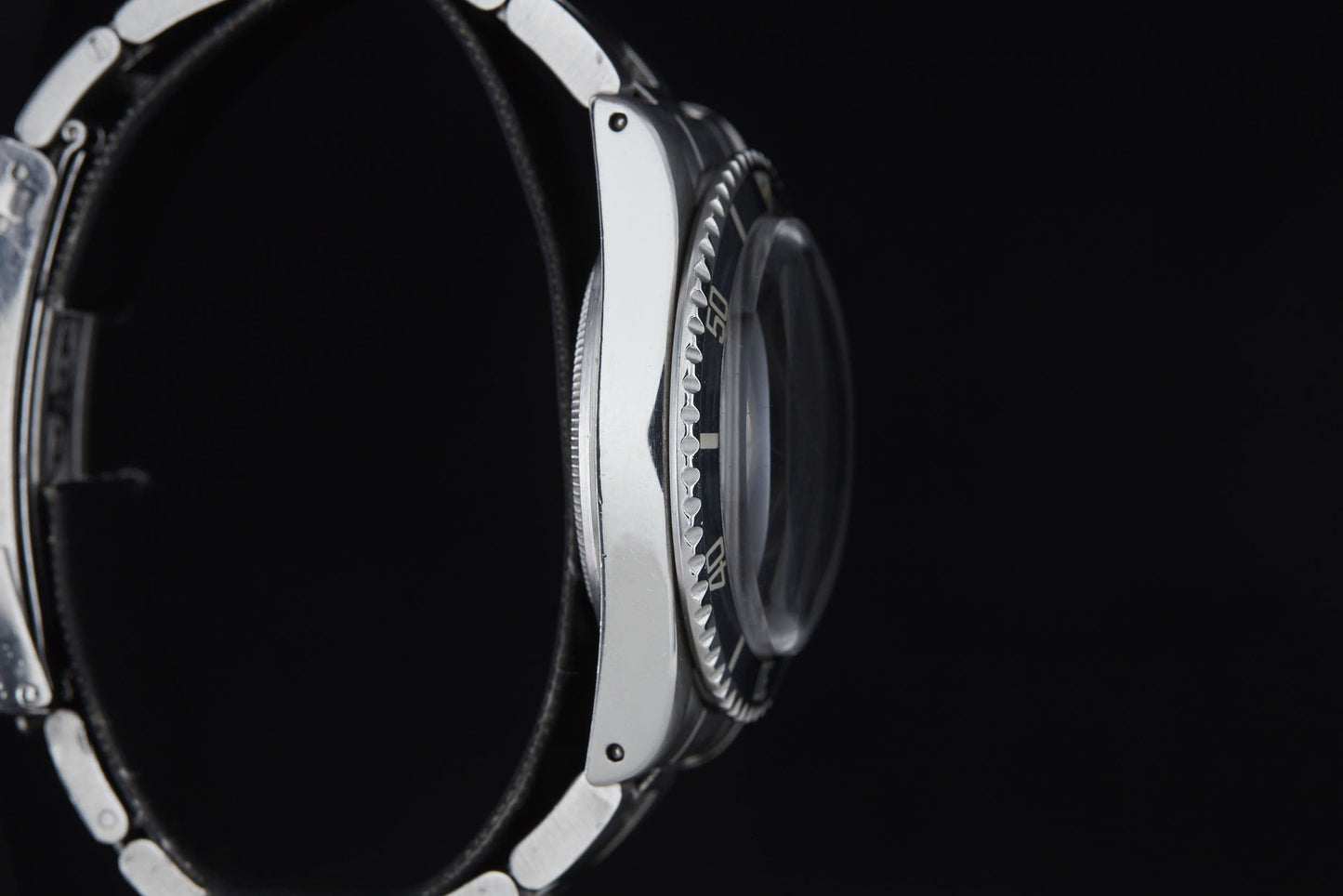
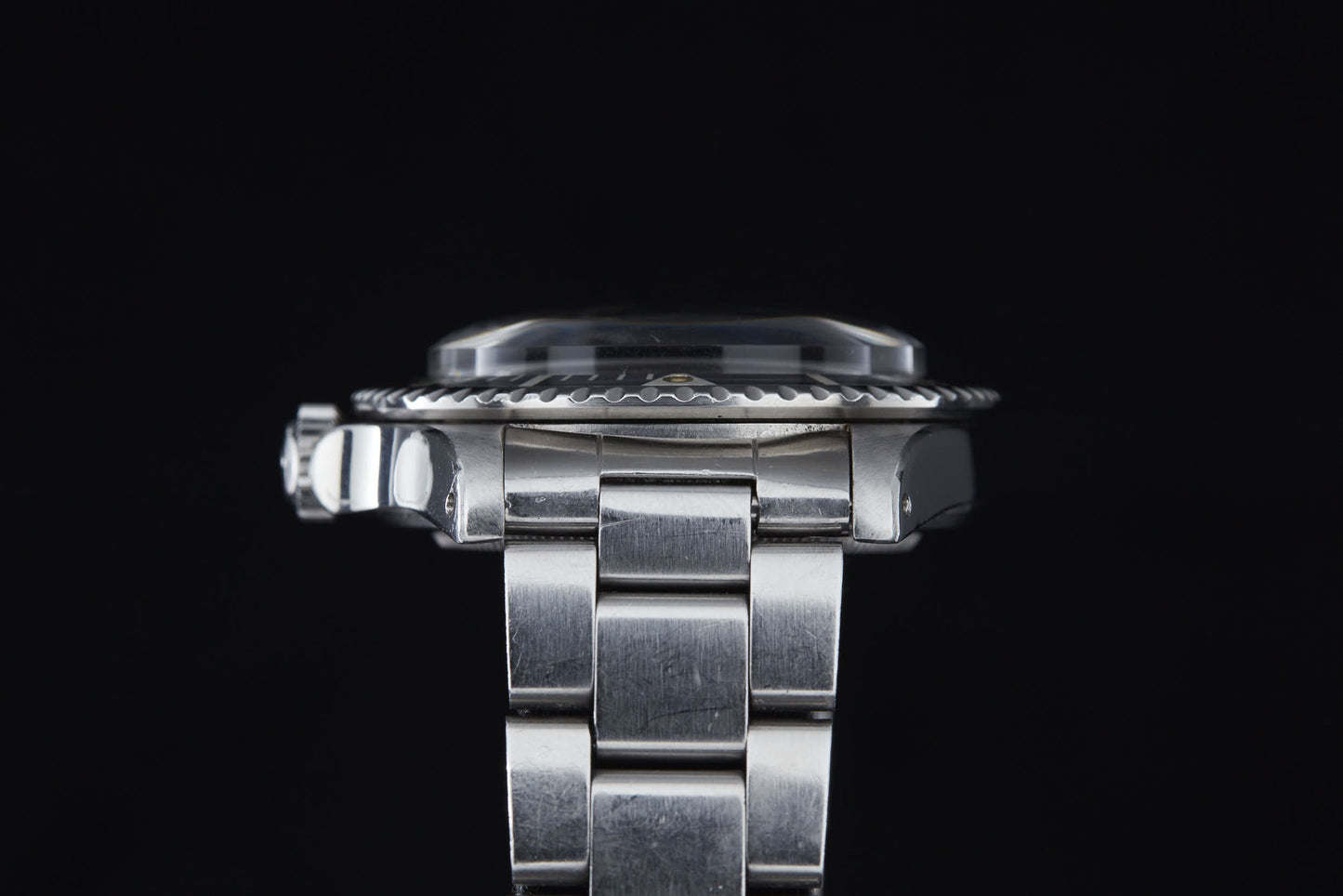
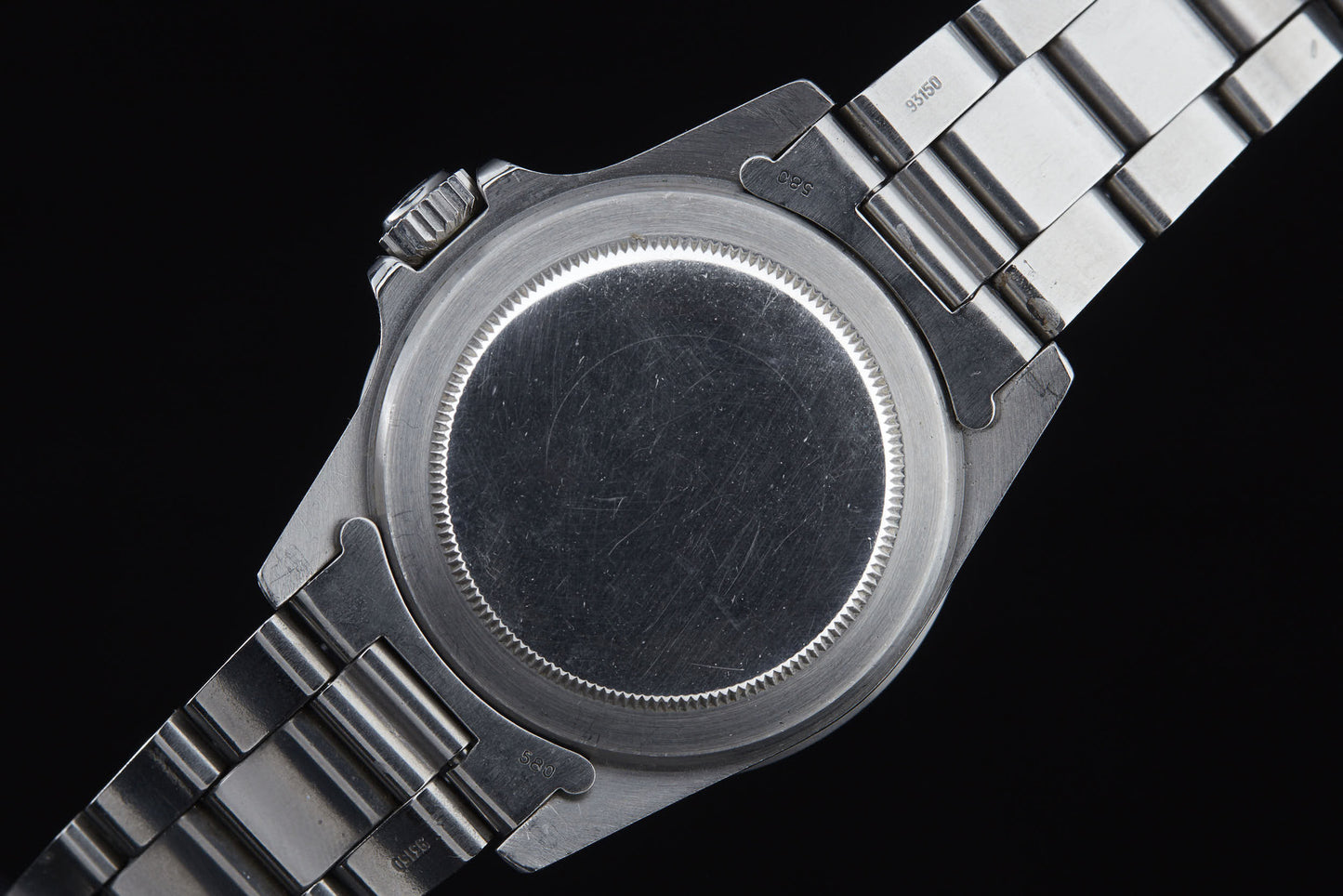
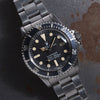
Rolex Submariner
- Soldspan>
- Sold
